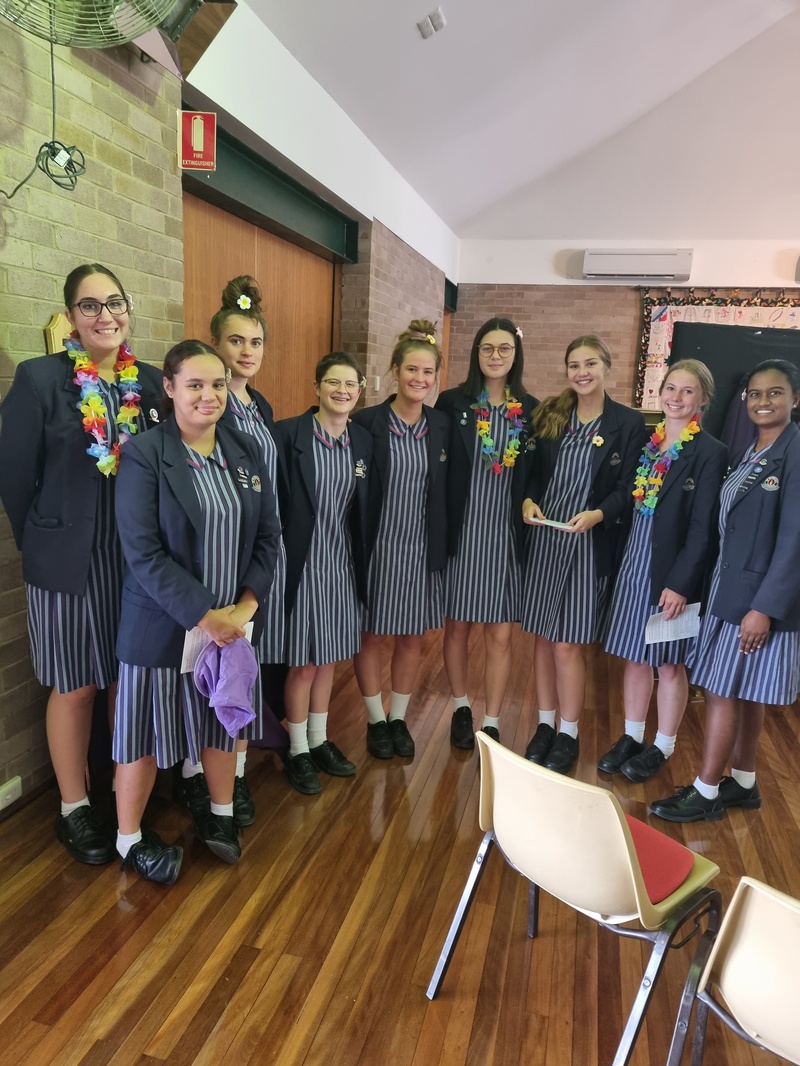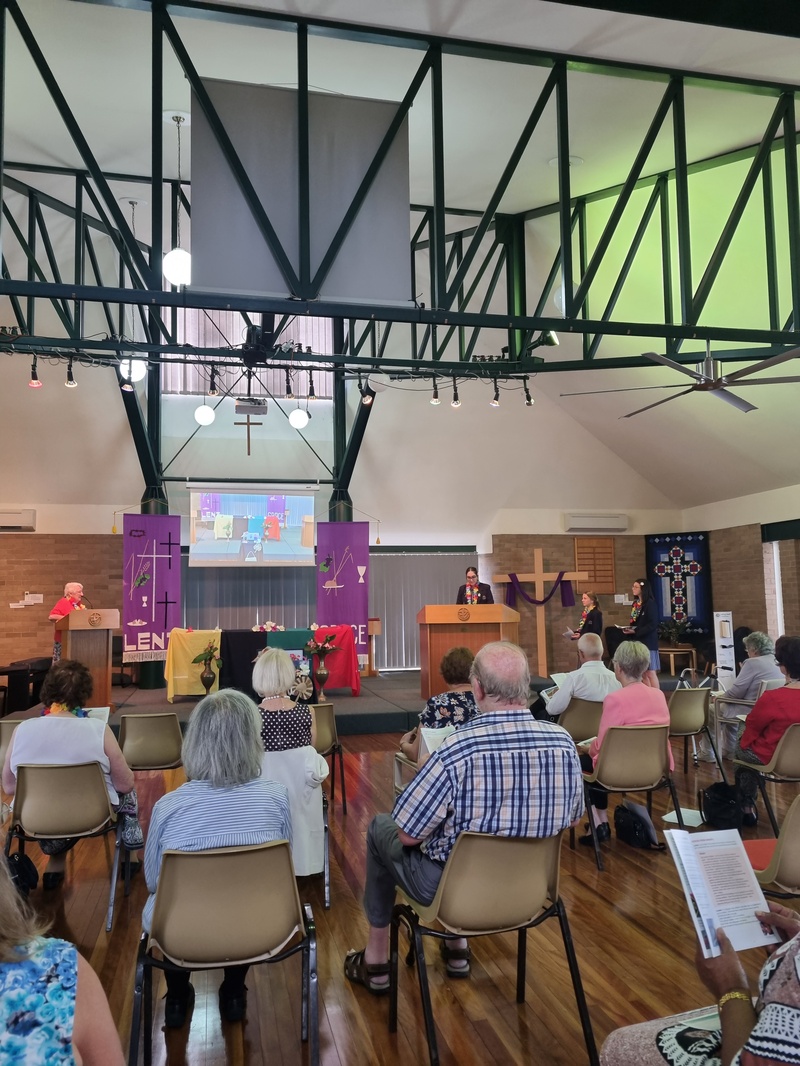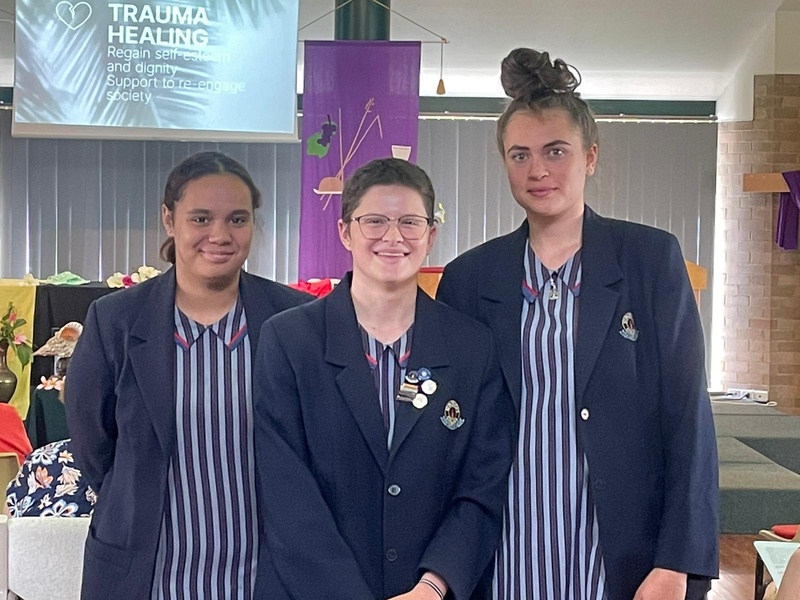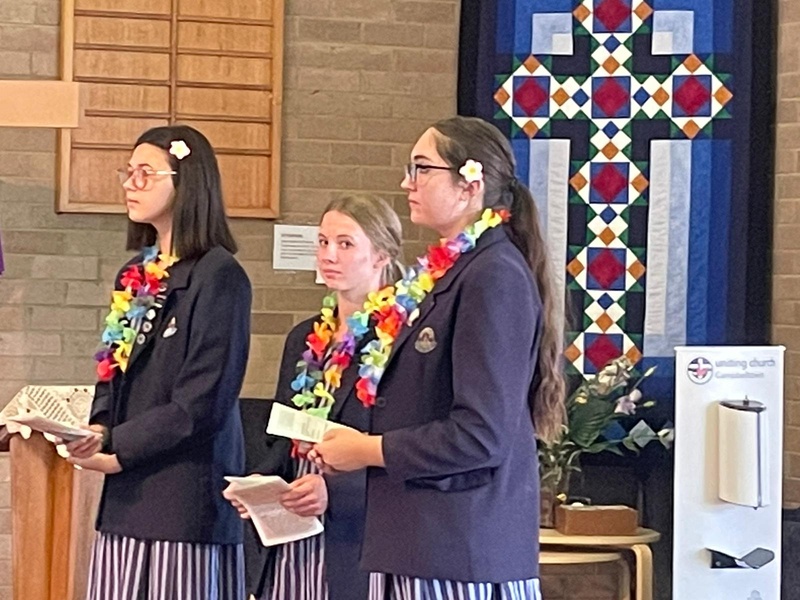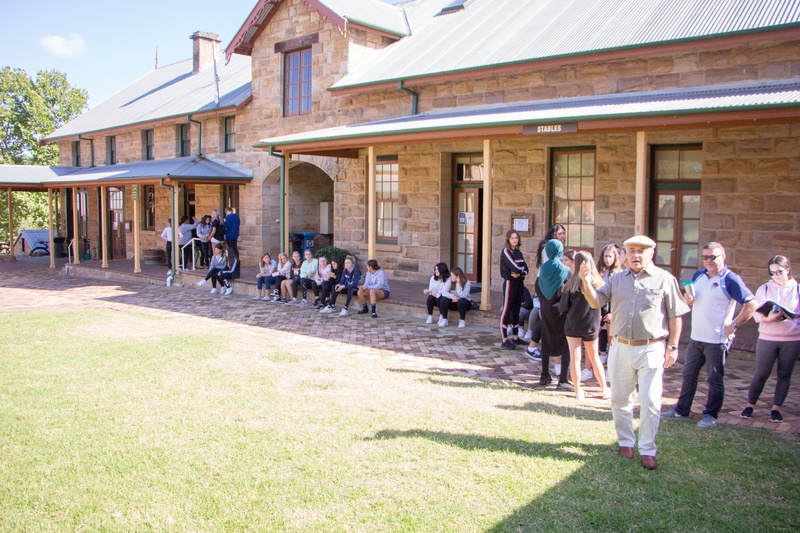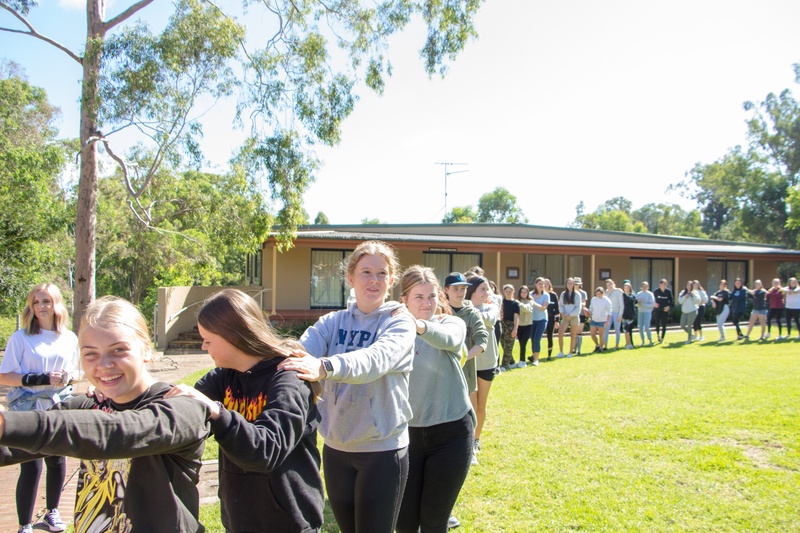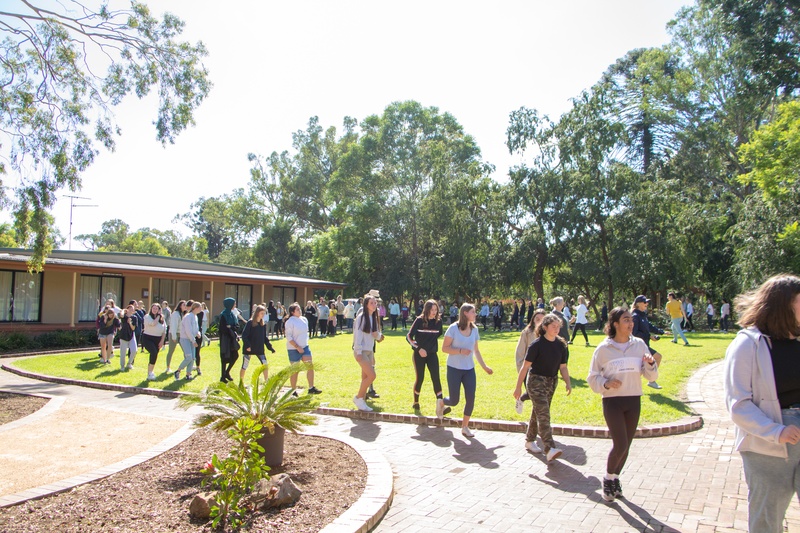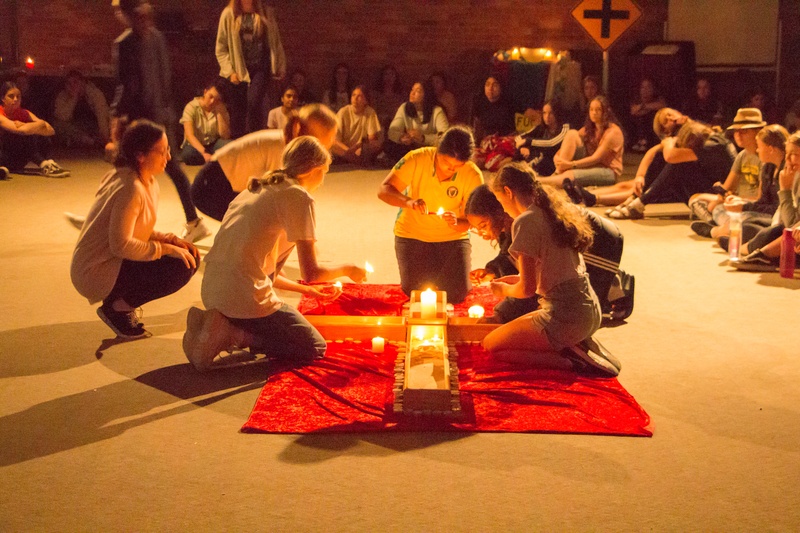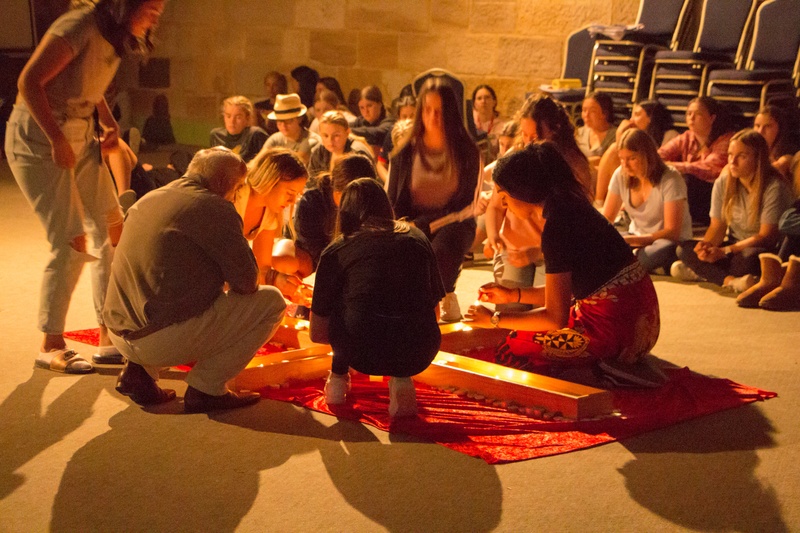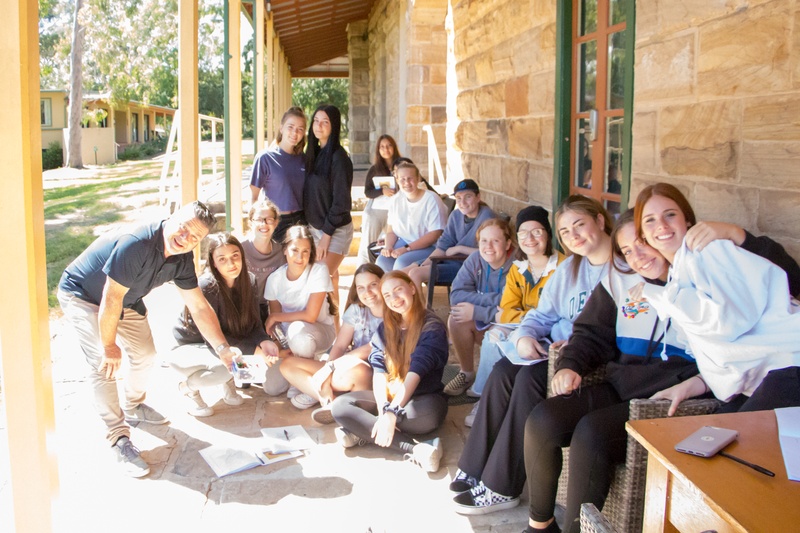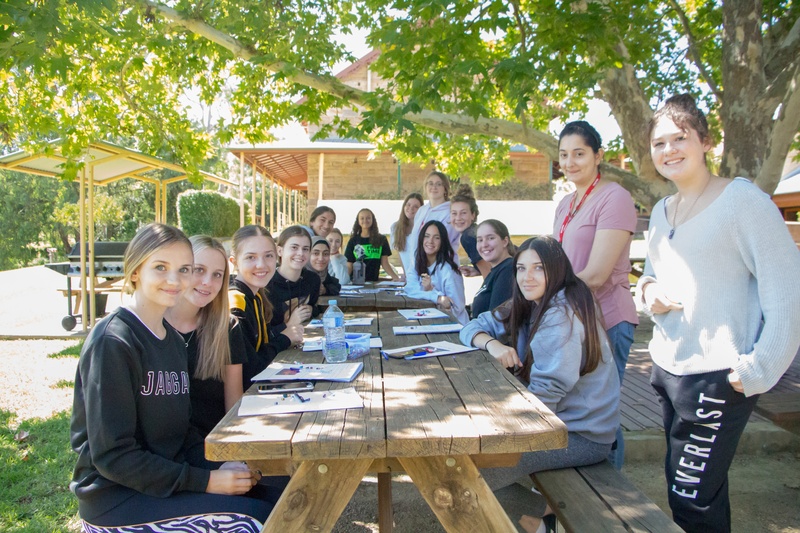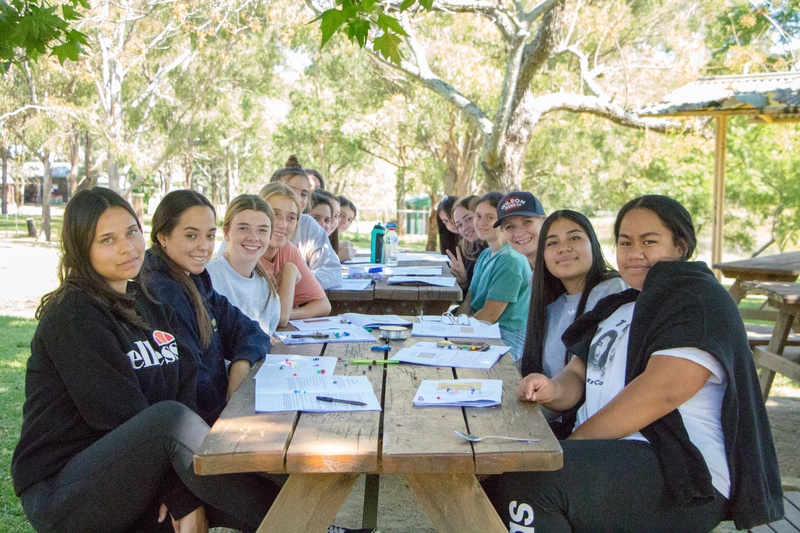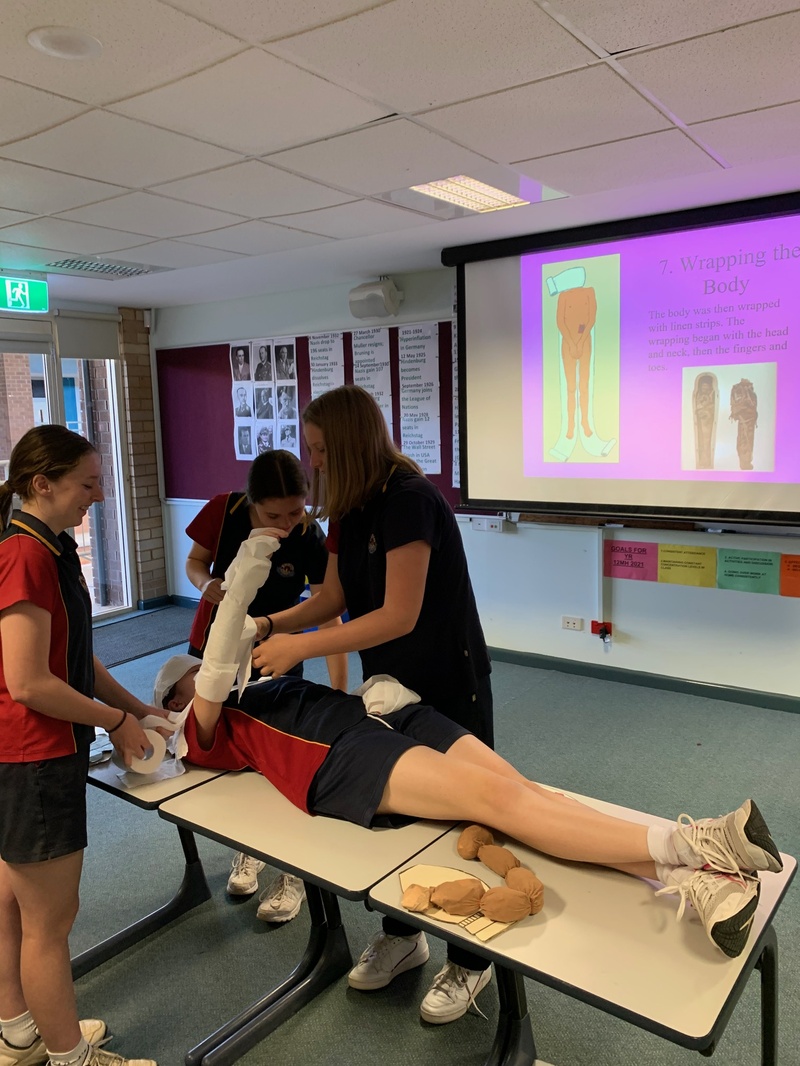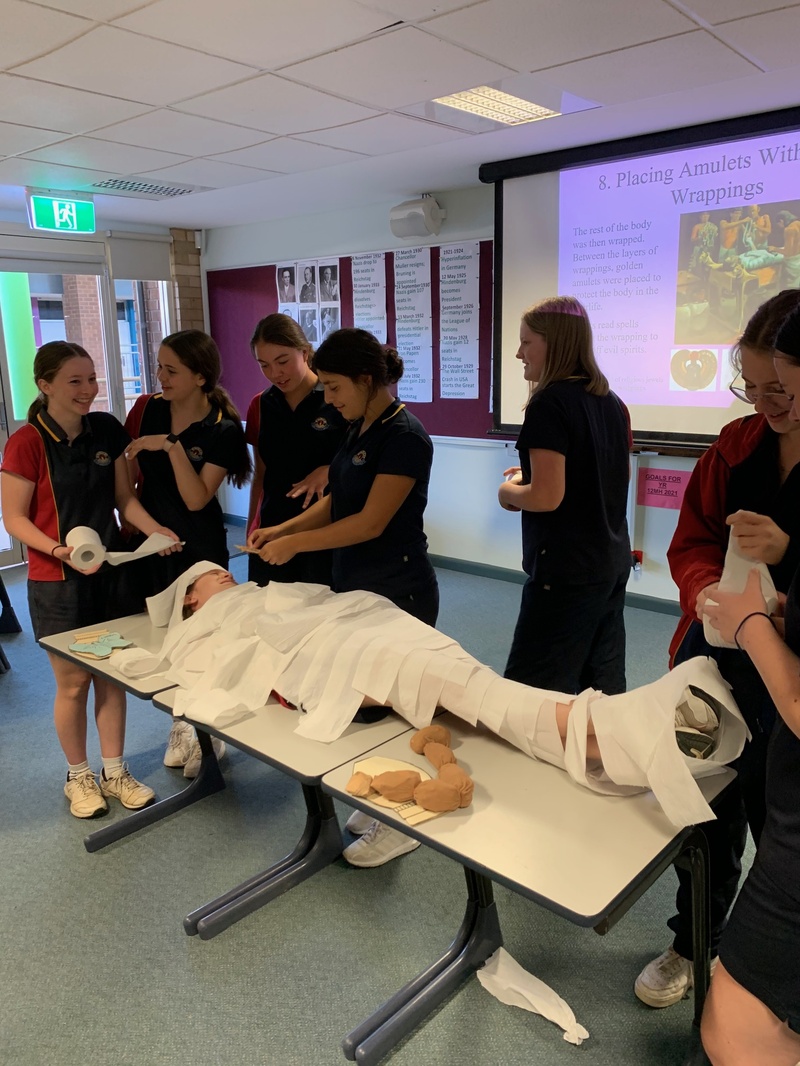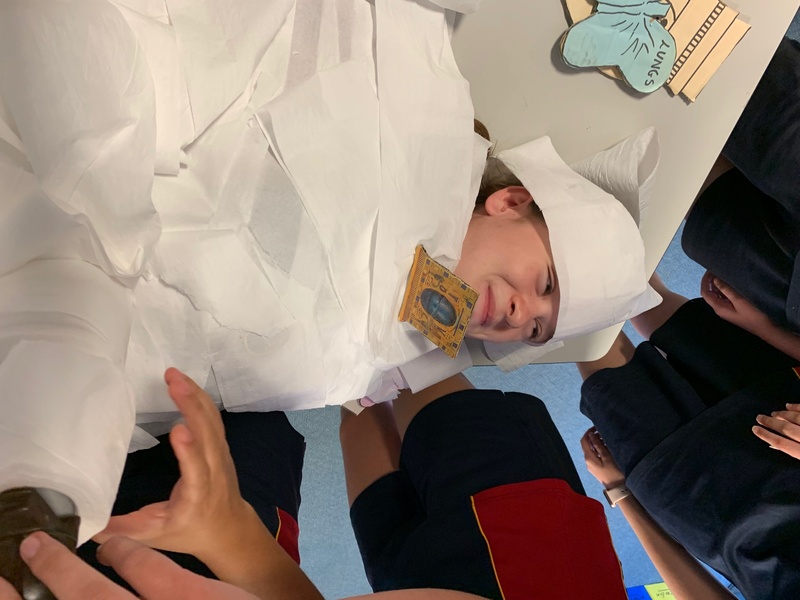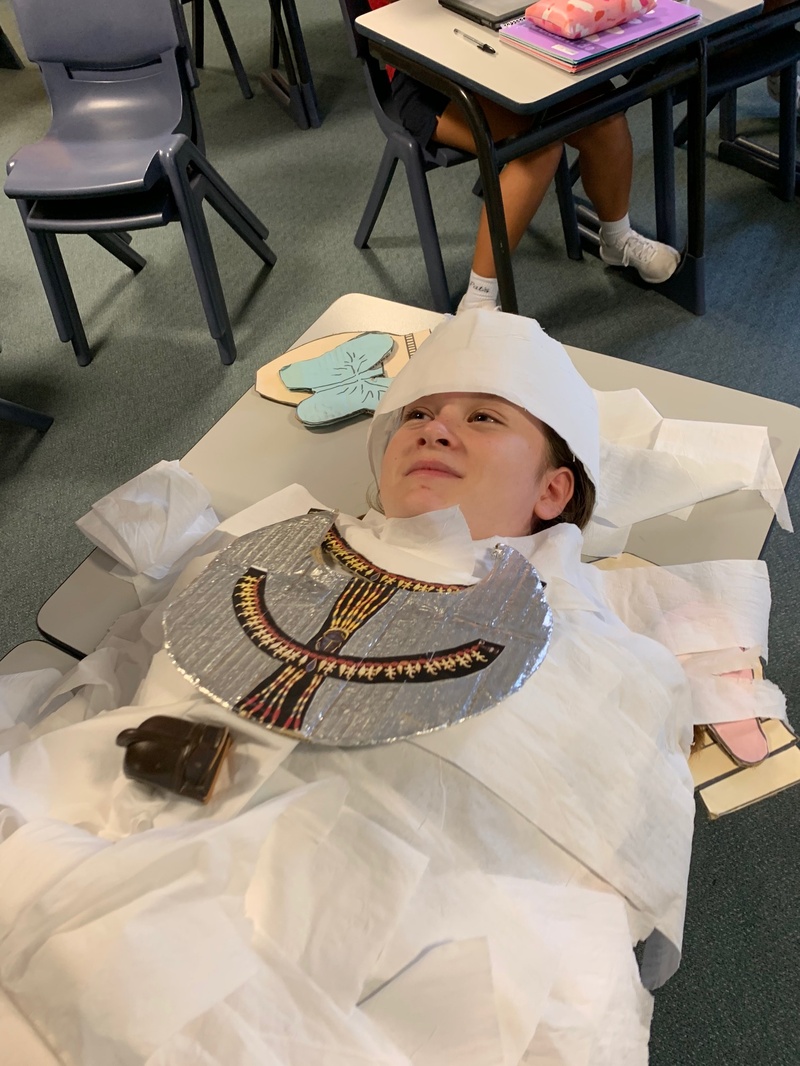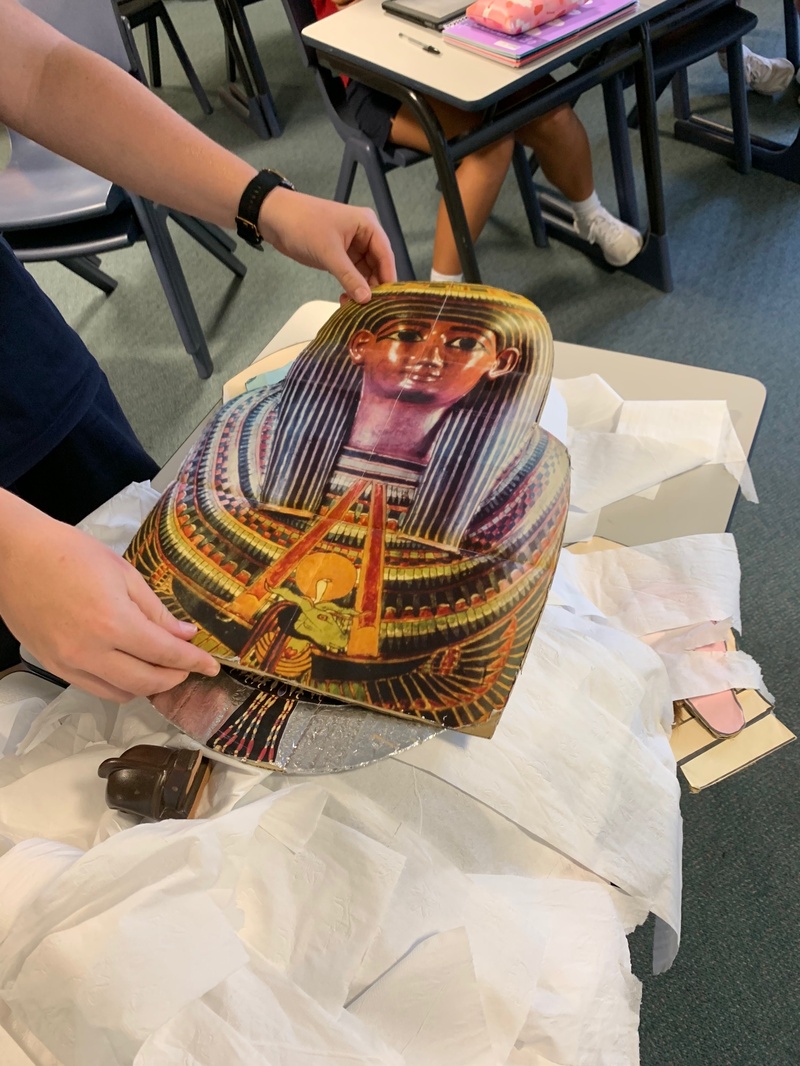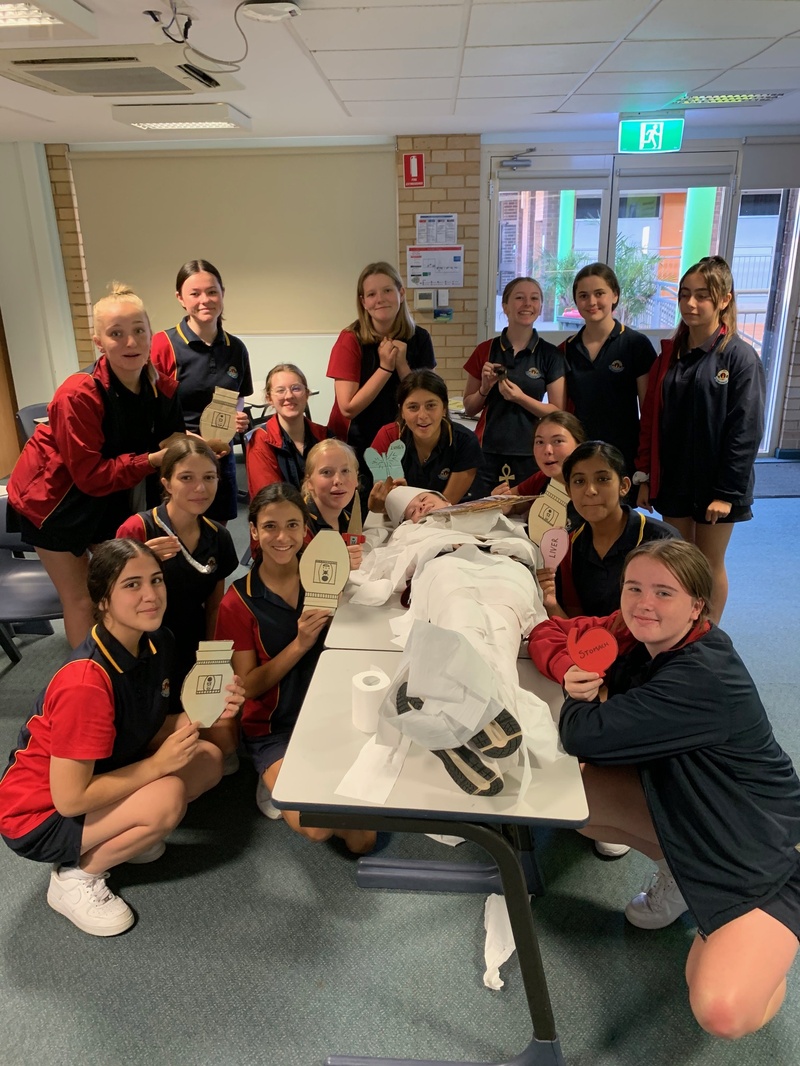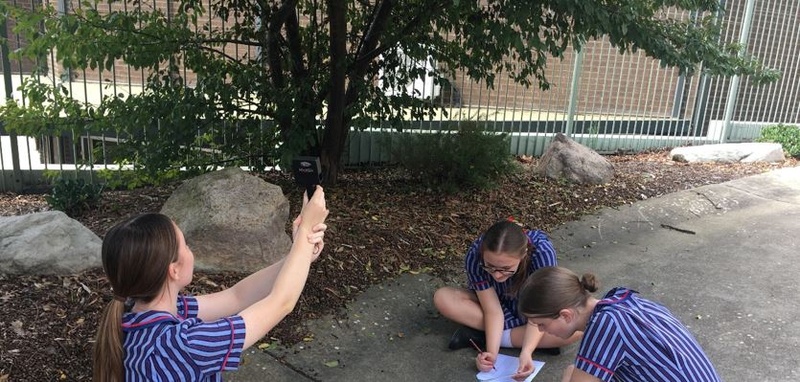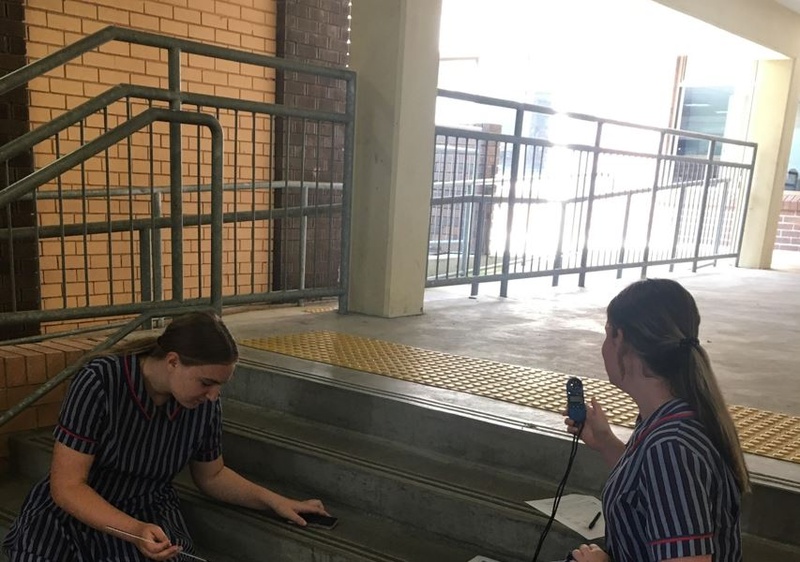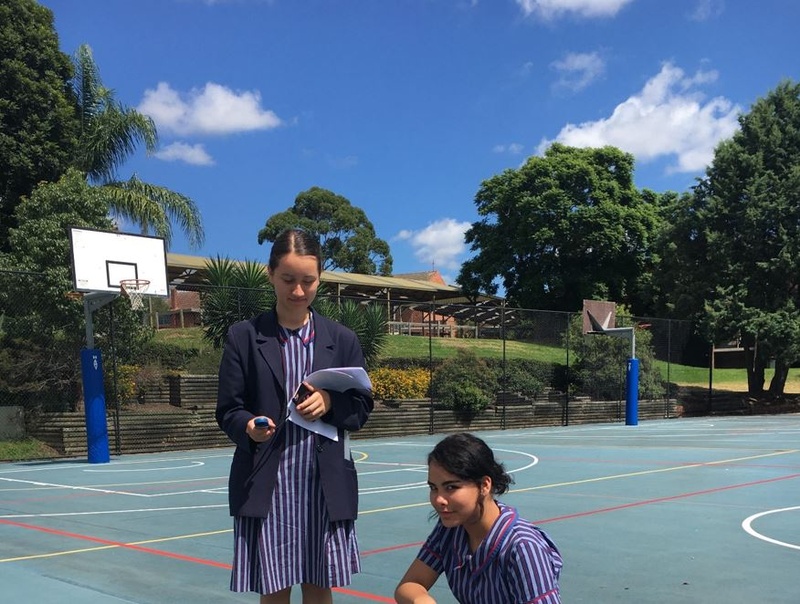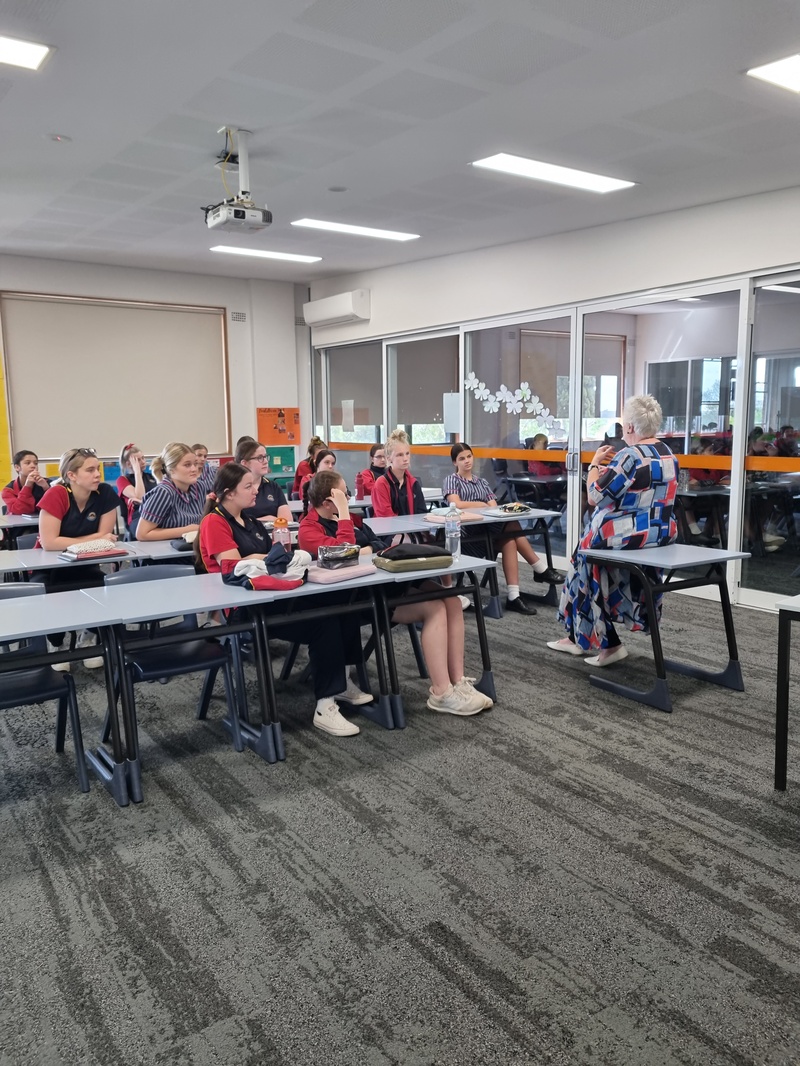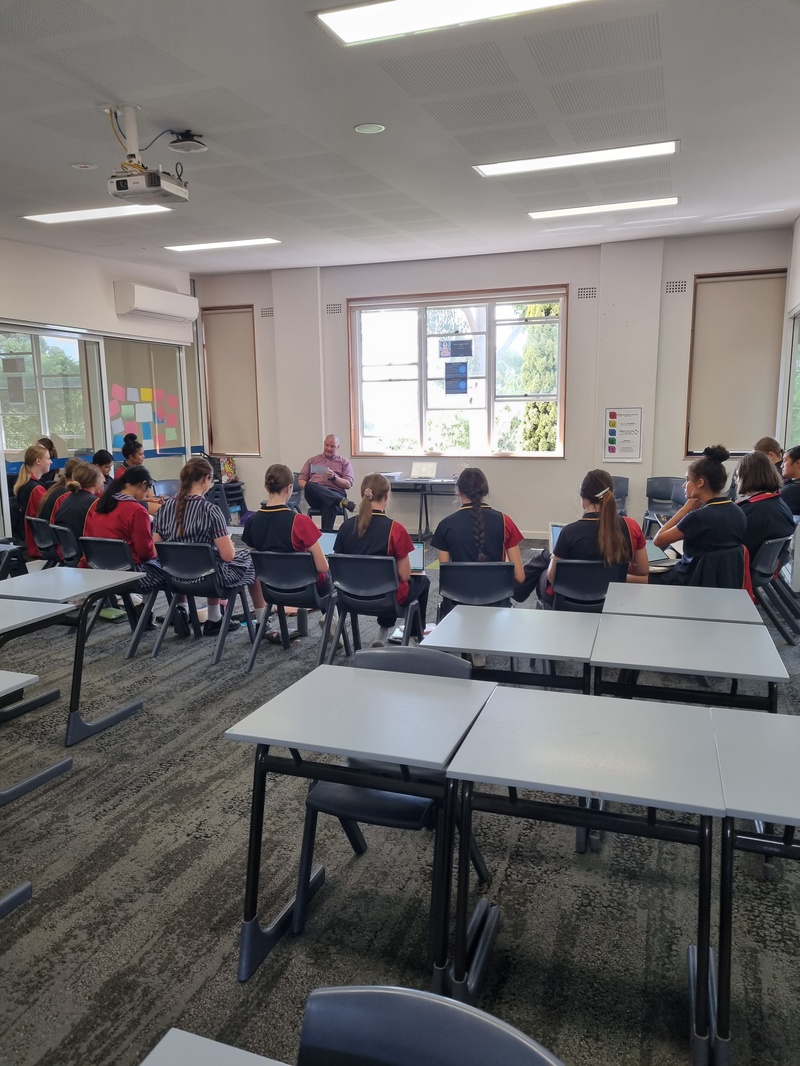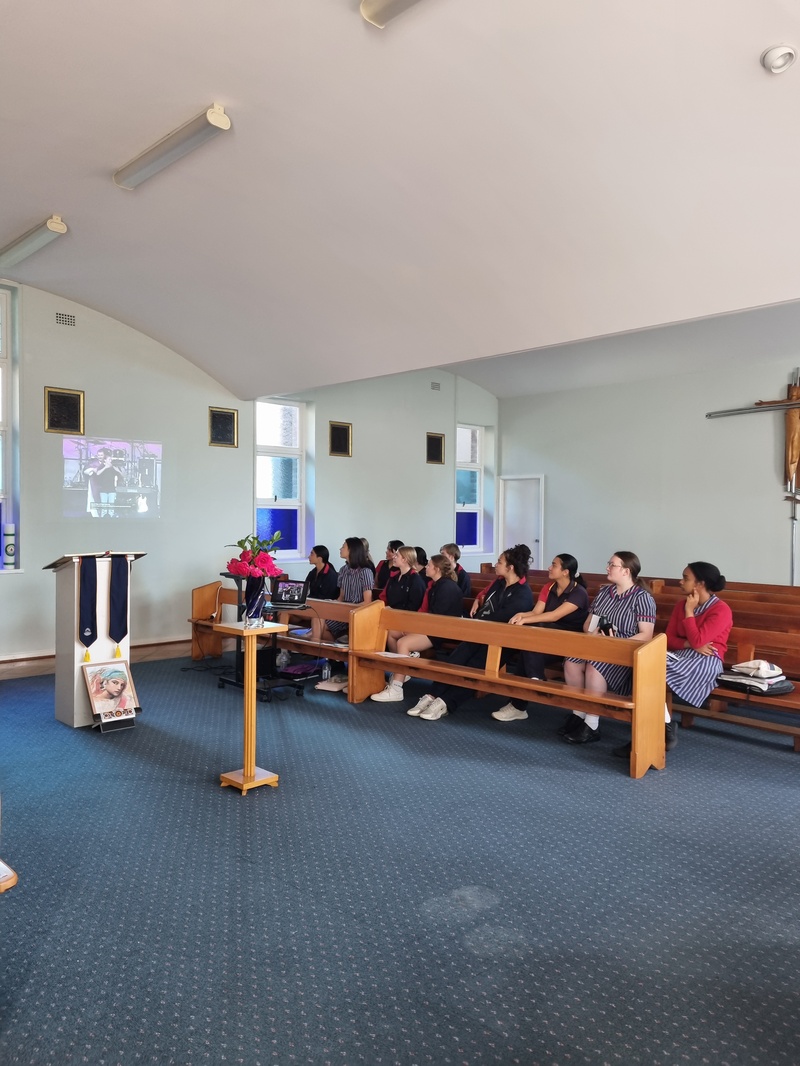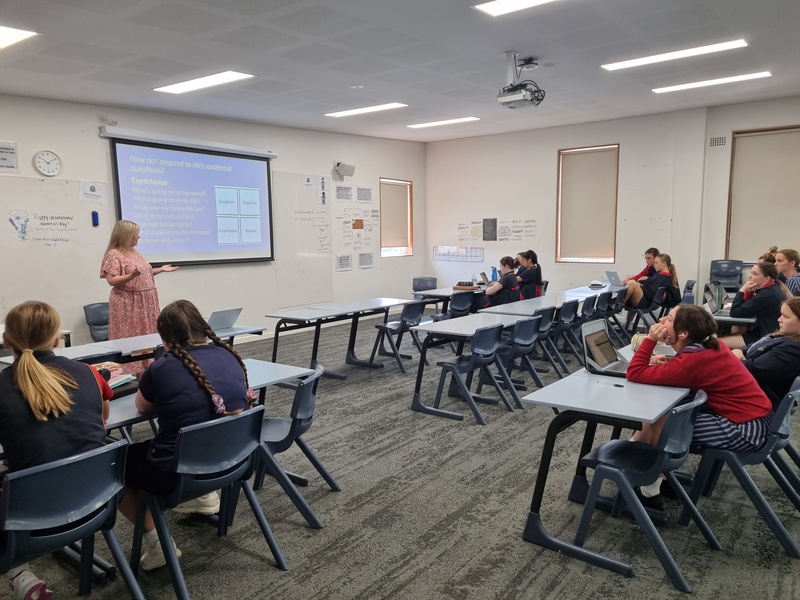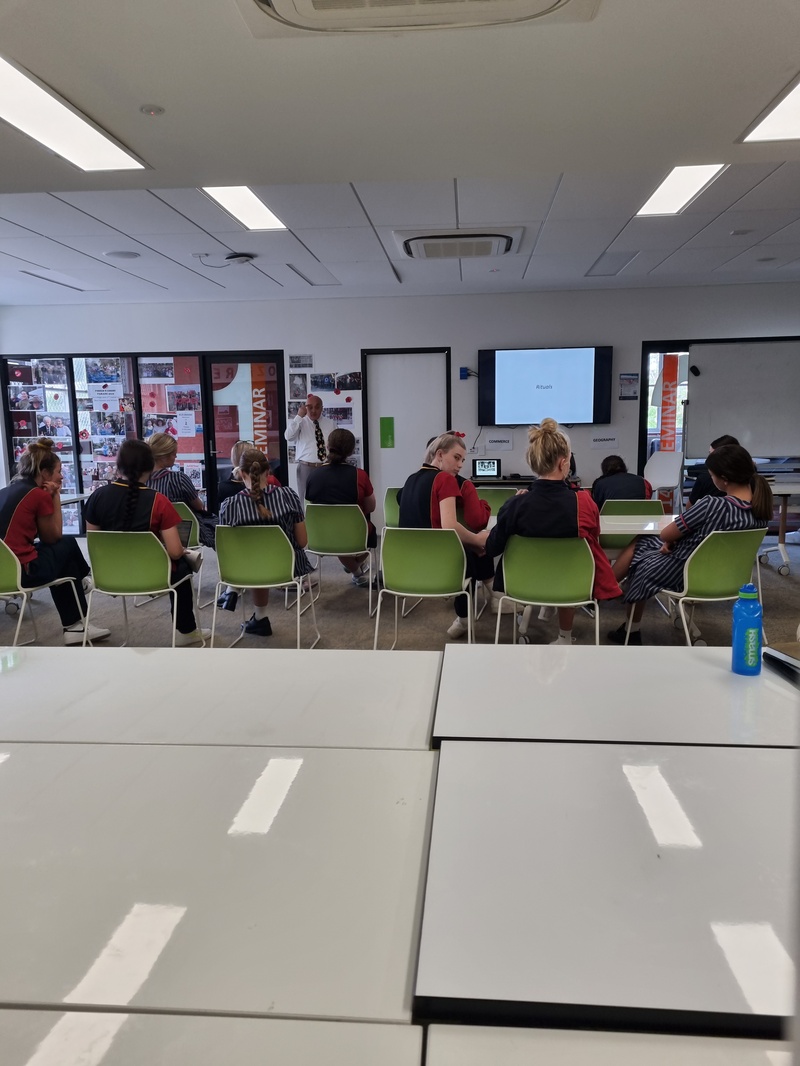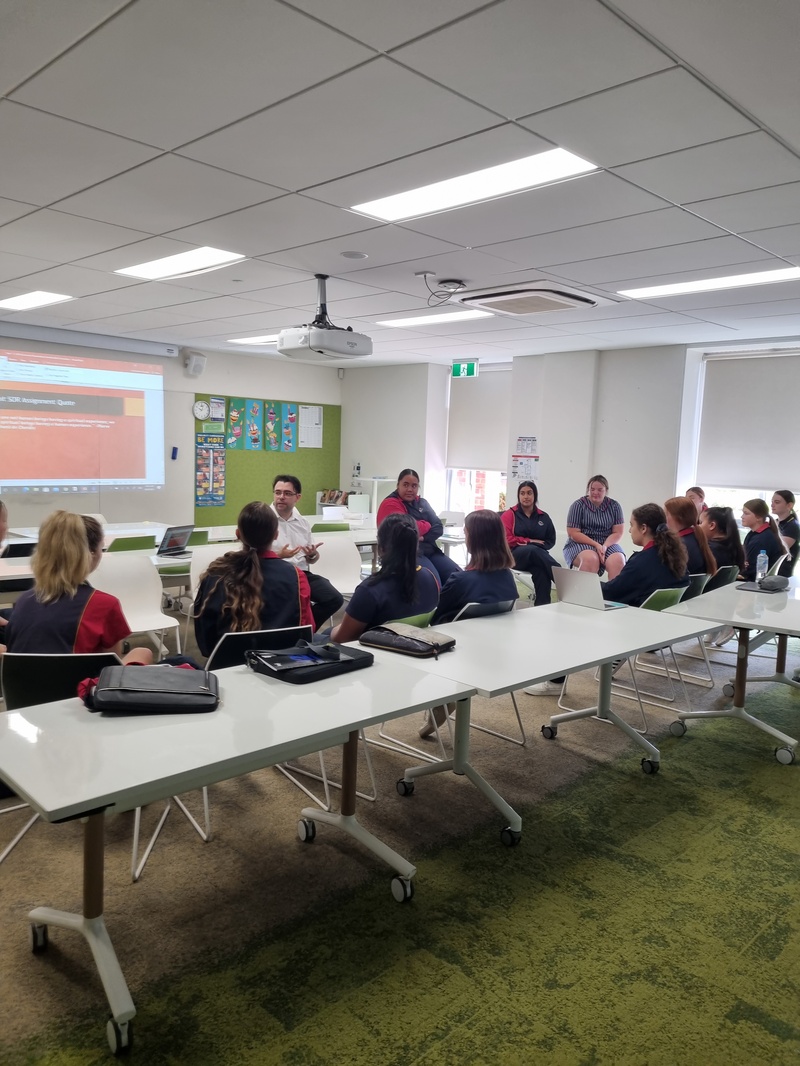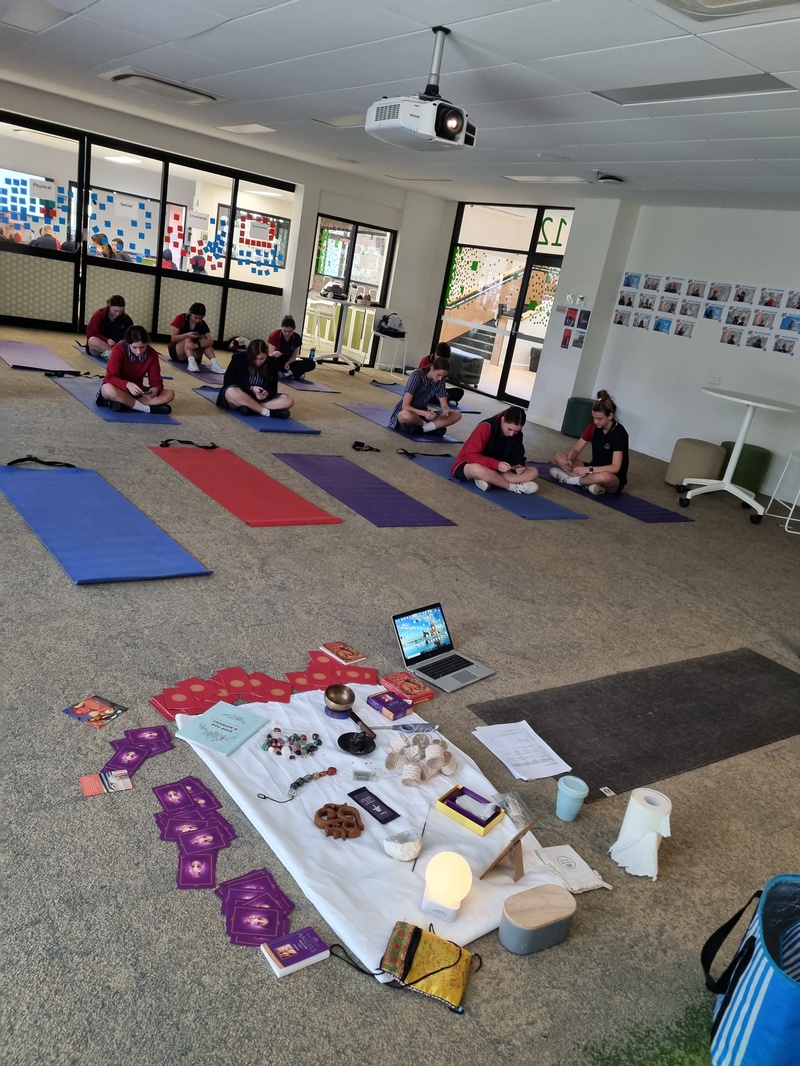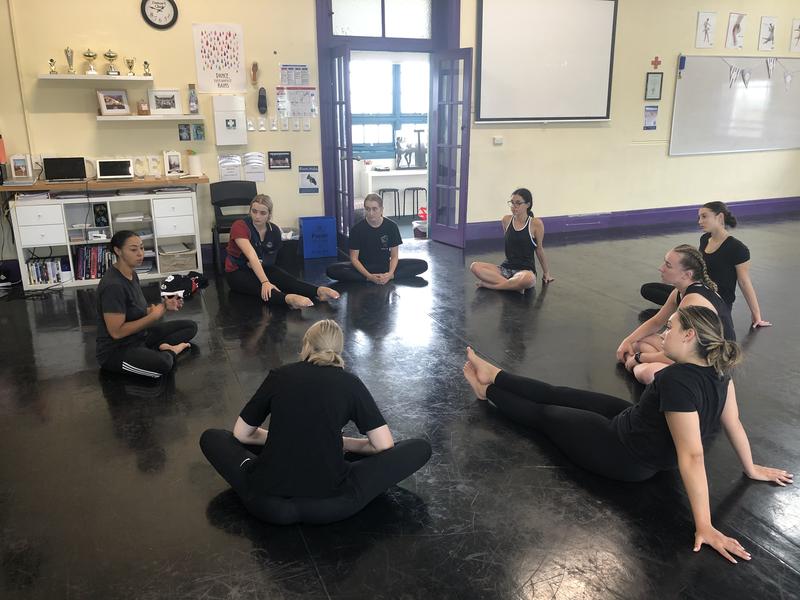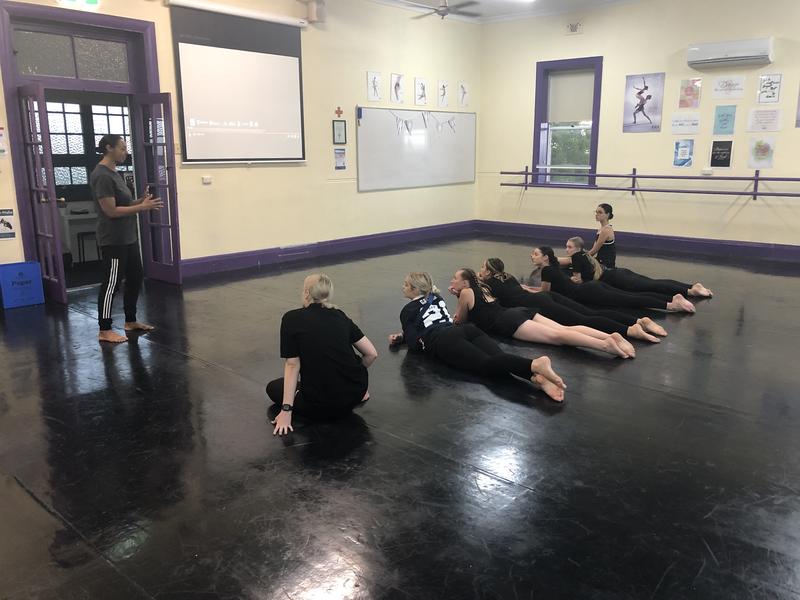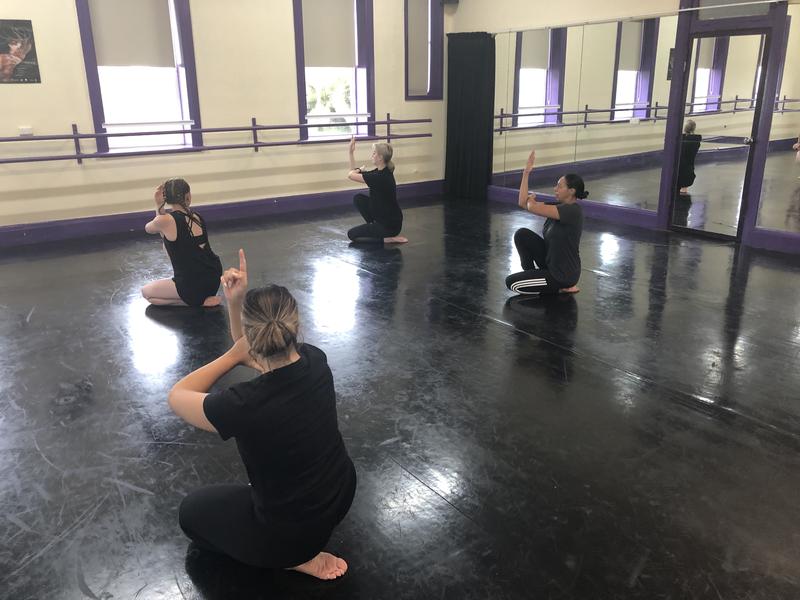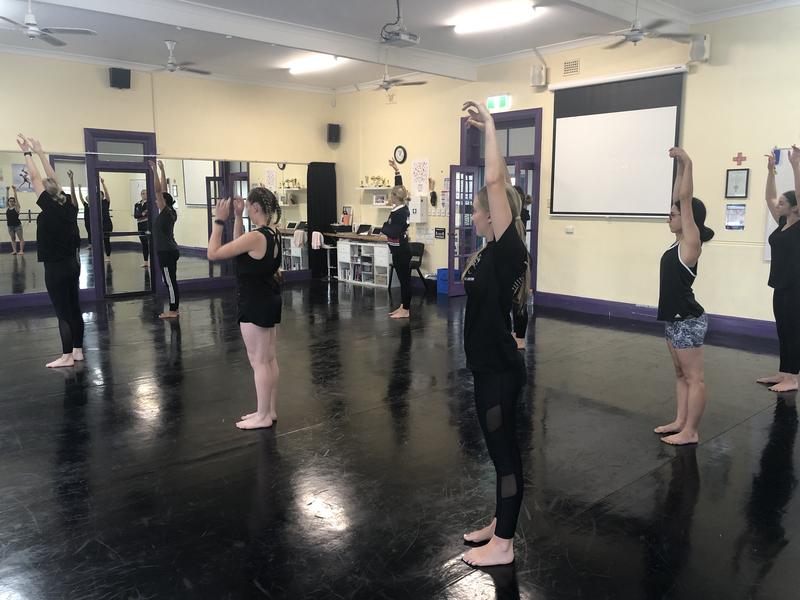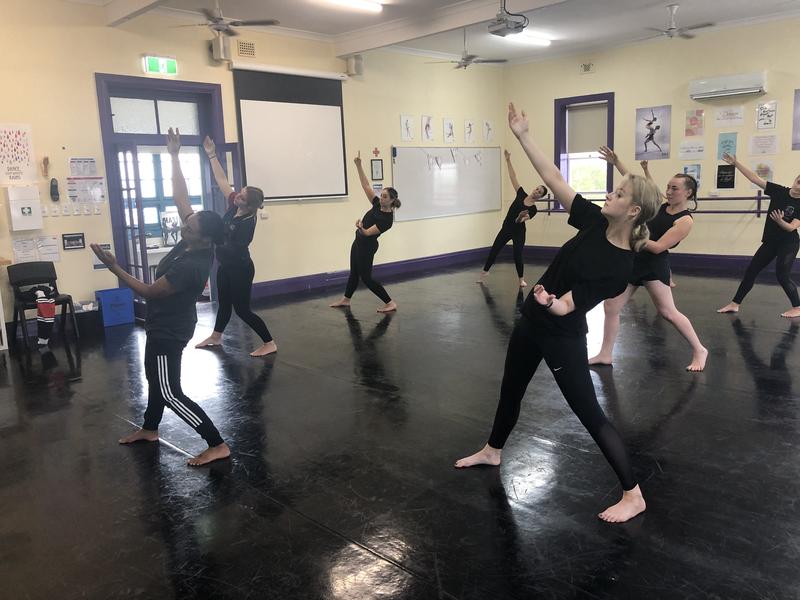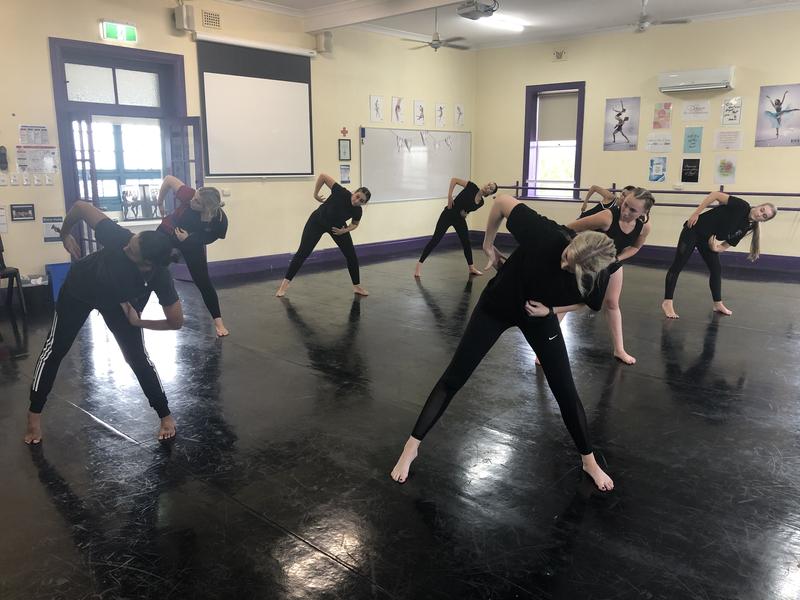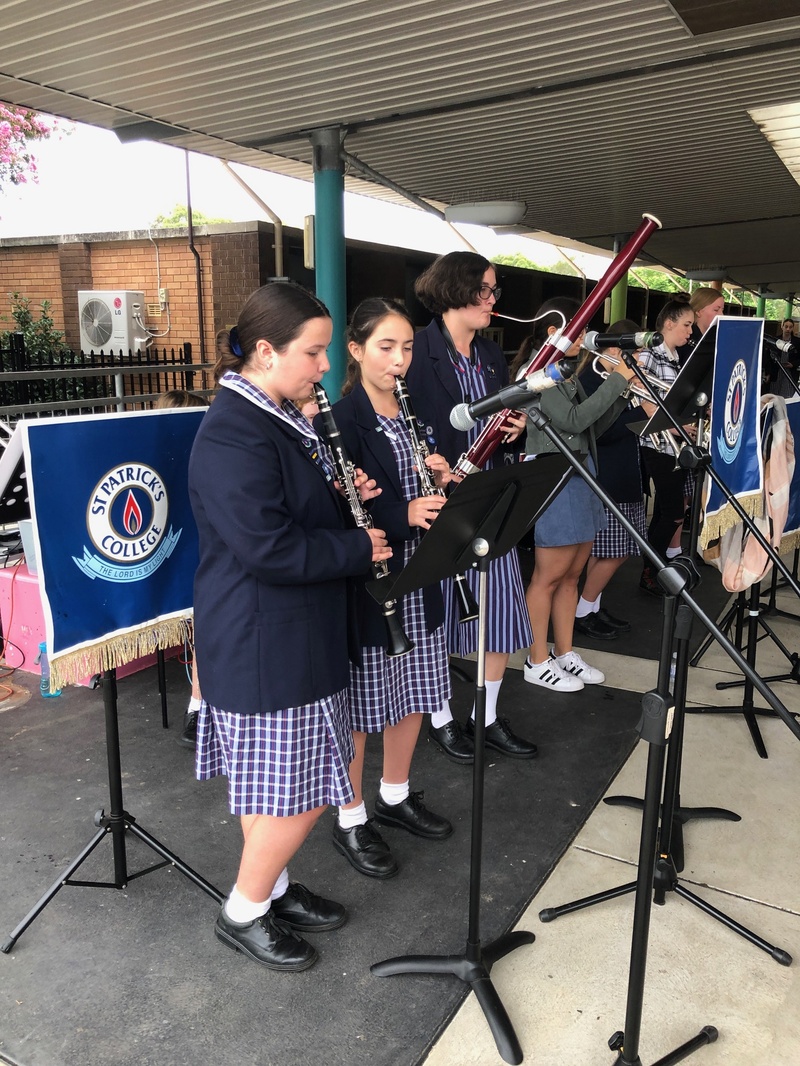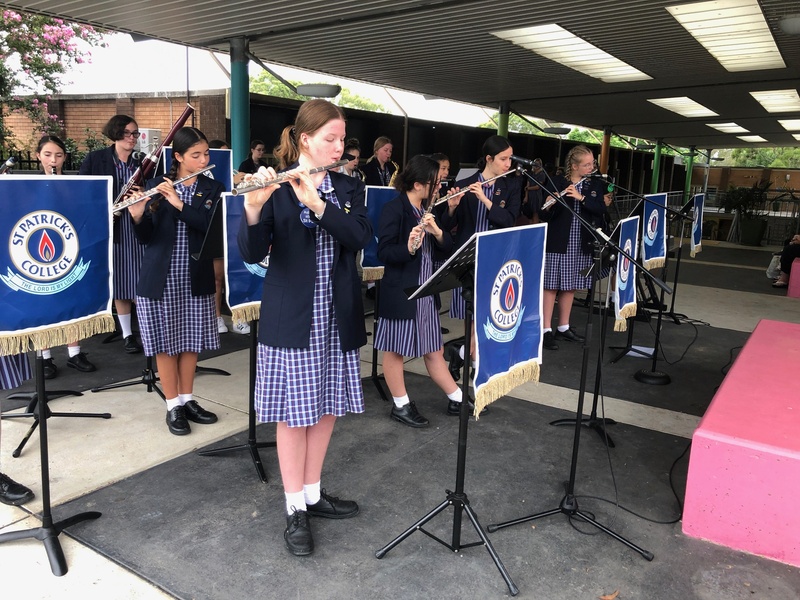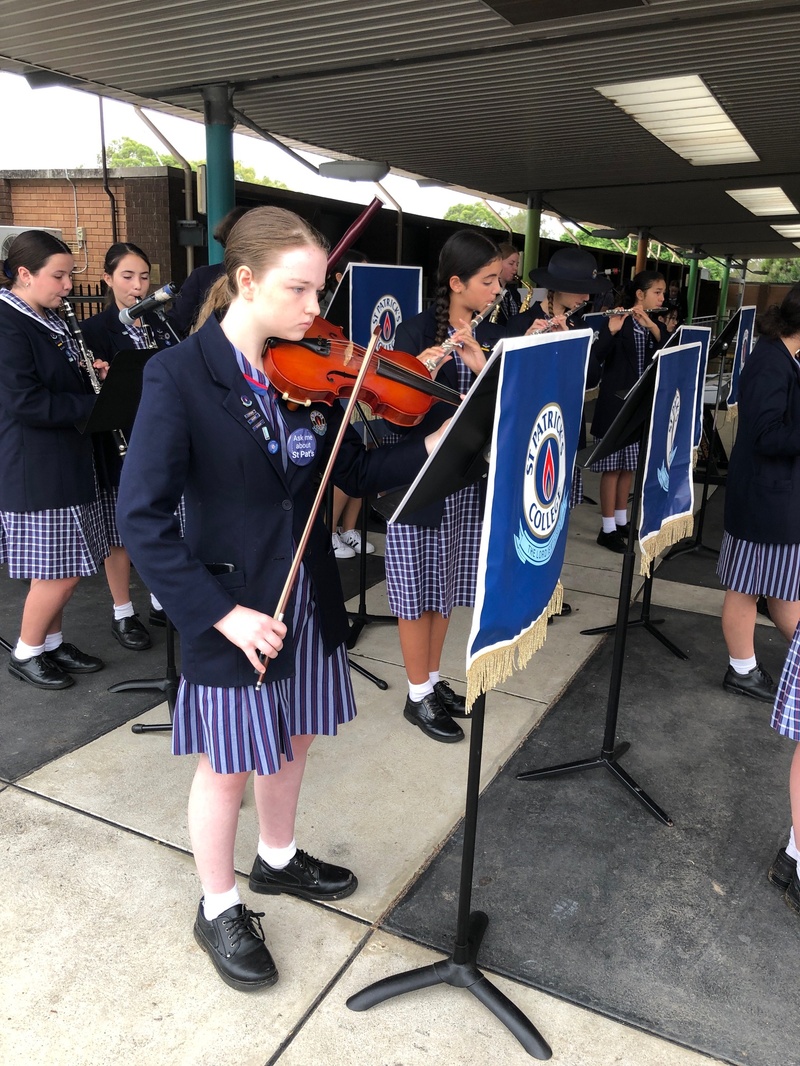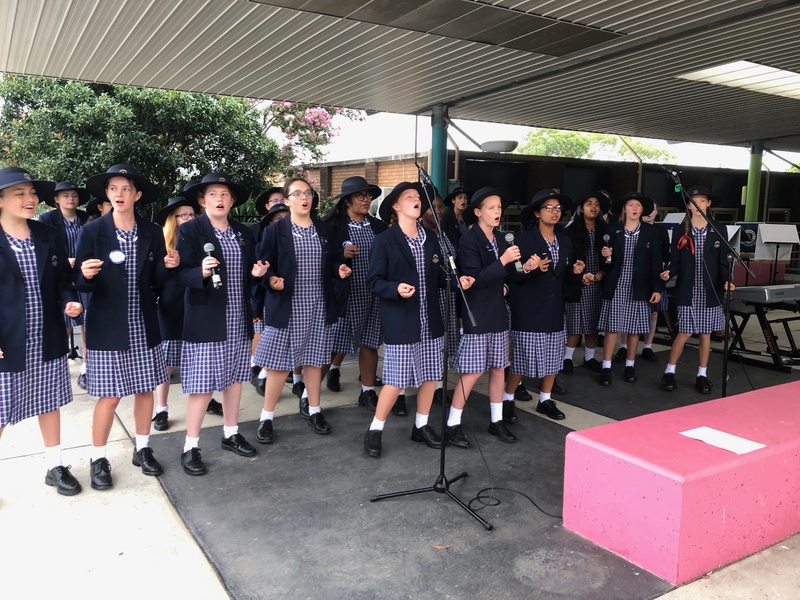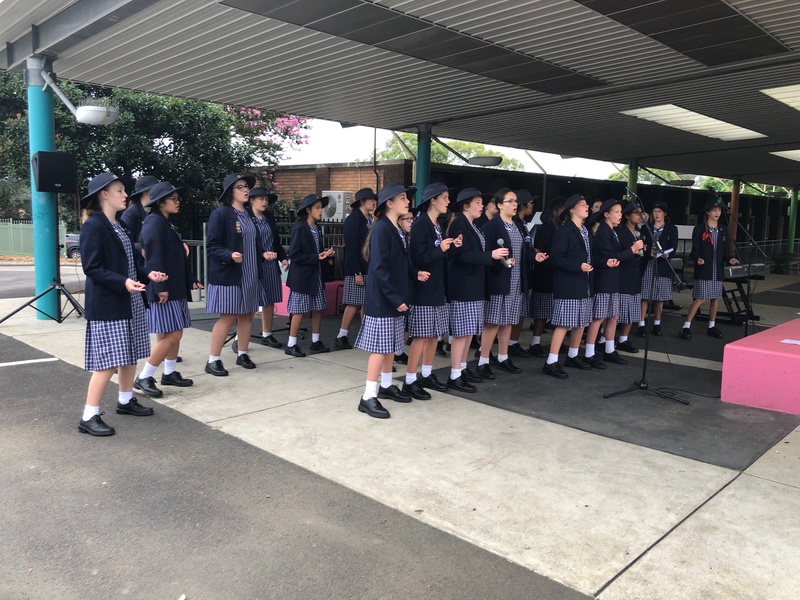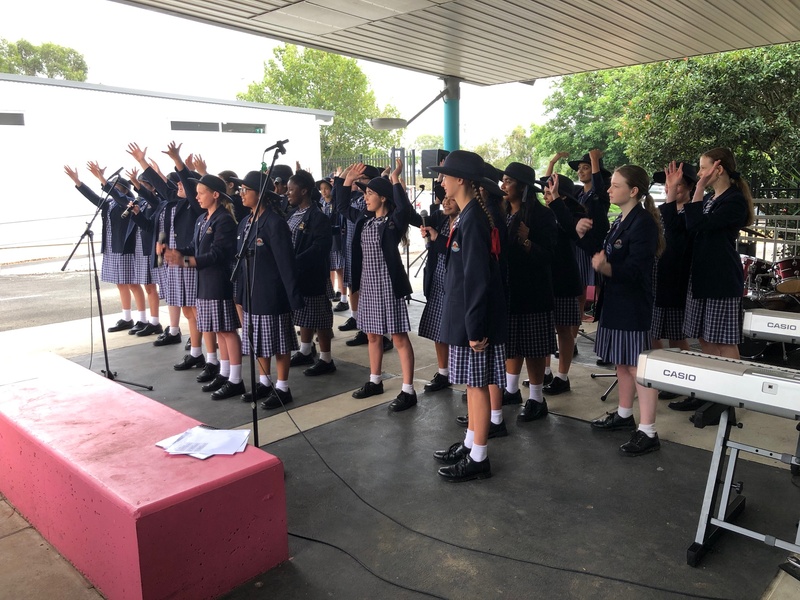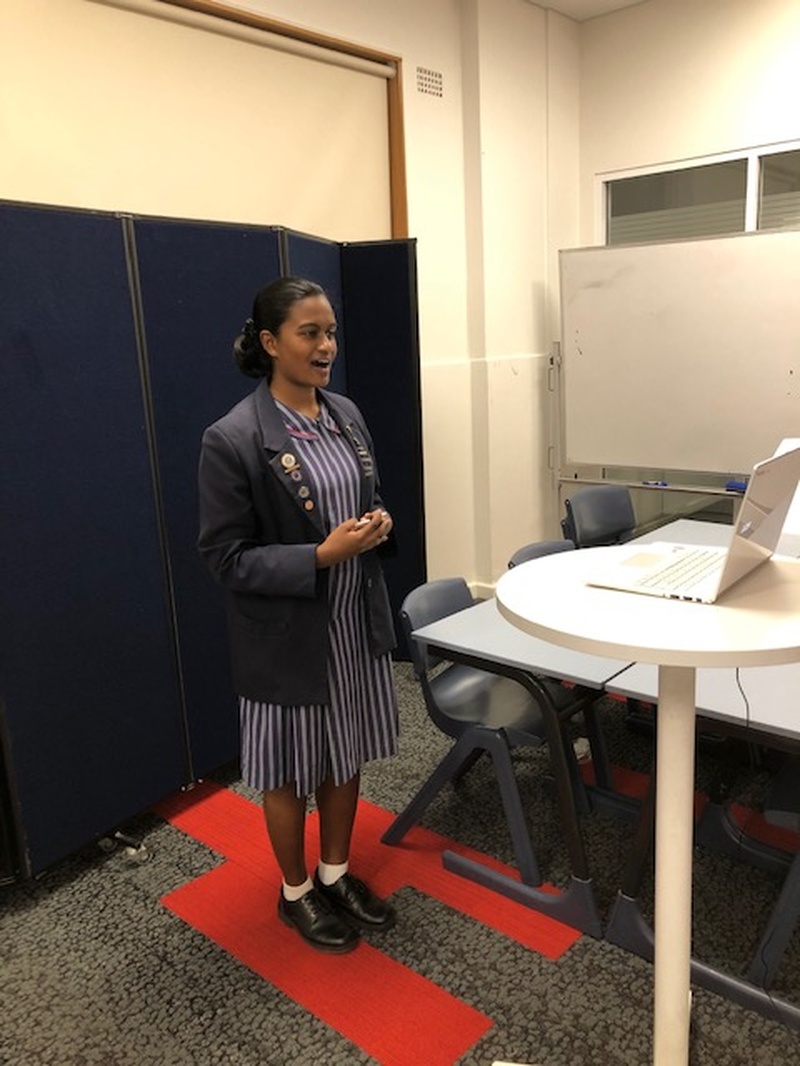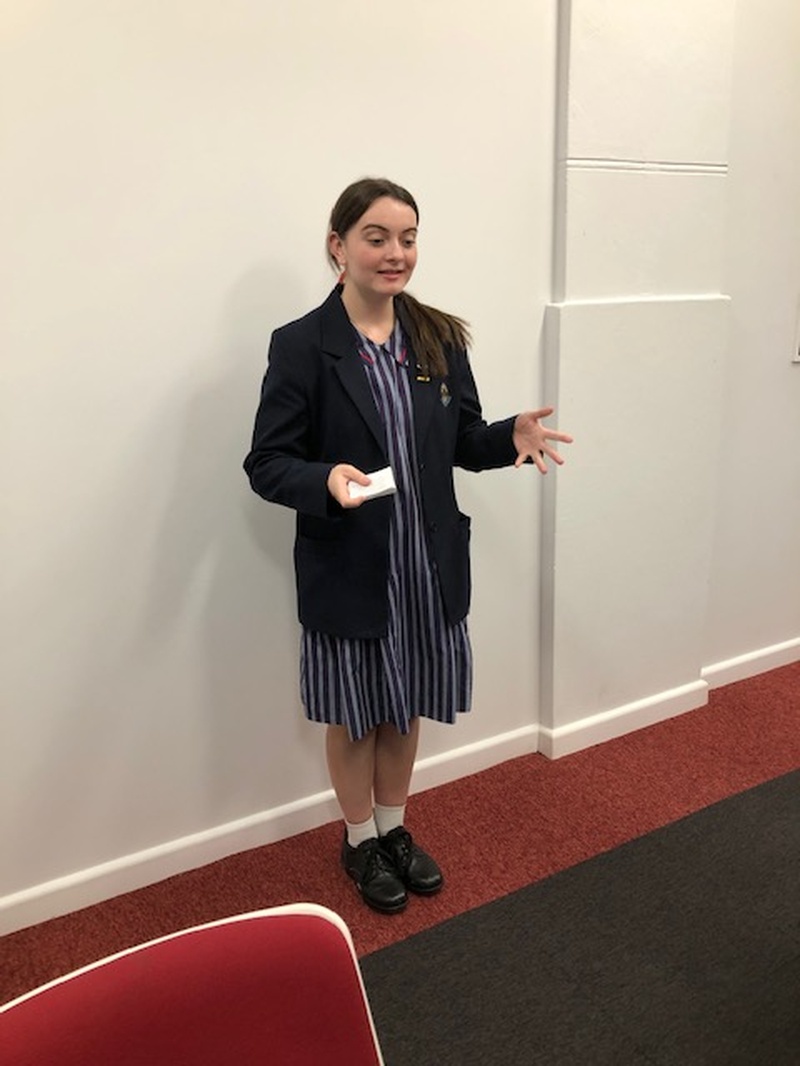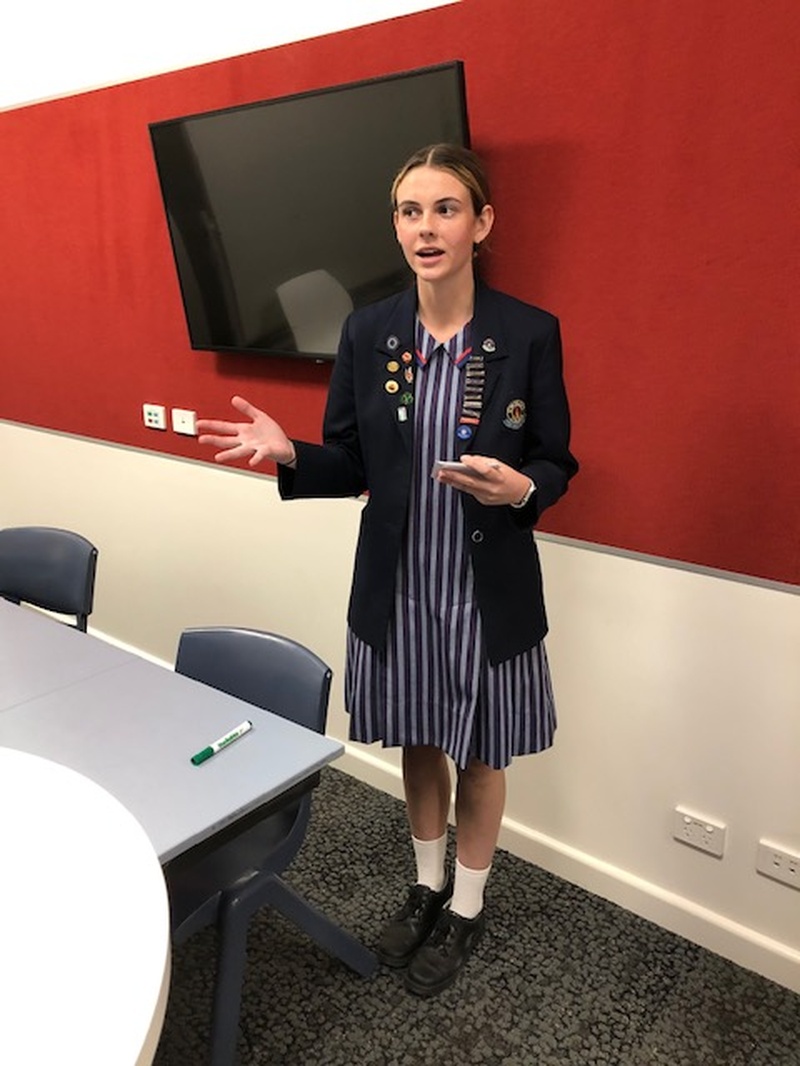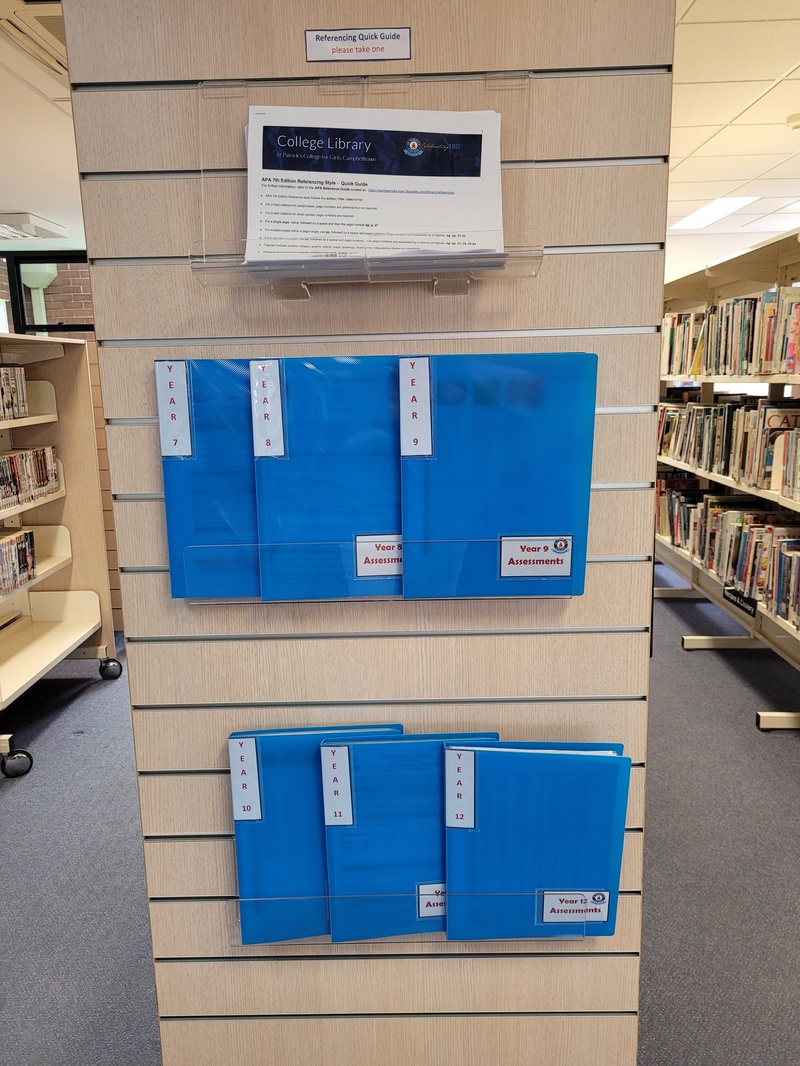From the Principal
Message from the Principal
Dear Parents and Friends of St Patrick’s College
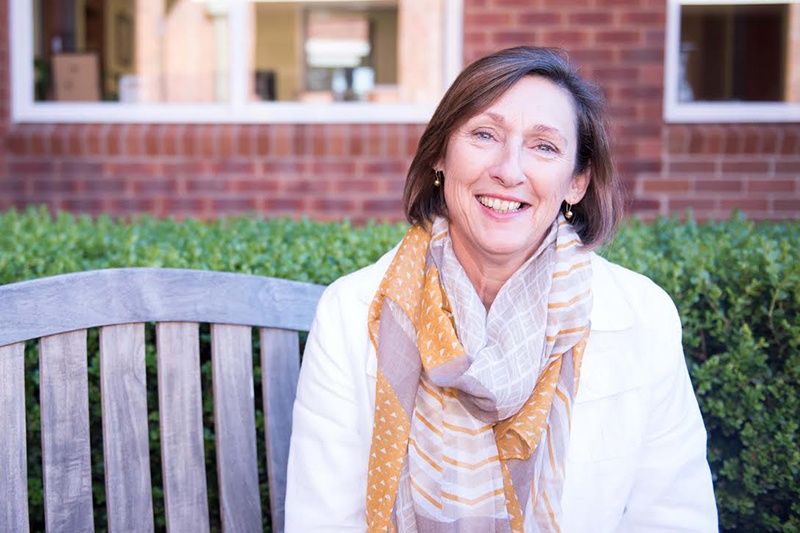
Sue Lennox - Principal
Last week we celebrated International Women’s Day with a breakfast at the College. Our College leaders held a few activities to mark this special event on the actual International Women’s day, which was Monday 8 March.
National Women’s Day was first celebrated on that day in the United States of America in 1909.
Over the last century much has been achieved for women thanks to the work and advocacy of many. Most importantly, the greater levels of education and access to health and employment prospects have improved significantly in that time. Despite this, much still needs to be done. Our girls are very fortunate in that they can access education. There are over 130 million girls across the world who do not have this. Girls continue to experience greater levels of poverty, are trapped in child marriages and exposed to violence and physical mutilation in countries over the world. There continues to be barriers to equality and treatment of women that is unfair and discriminatory.
In this year, as we celebrate International Women’s Day, the media is filled with stories of the disclosures of young women of their experiences of sexual assault, the rising levels of domestic violence and the debate in parliament of the proposed new laws around coercive control. In all of these areas, it is the women who as victims are denied respect, dignity and equality.
The theme for International Women’s Day 2021 is Choose to Challenge. All of us, mums, dads, girls and boys, women and men, leaders and followers are charged with the brief to challenge gender bias, to challenge stereotyping, to call out and challenge inequality, to challenge gender power imbalances and challenge disrespect. As we all work towards a world that respects and values all people, we debunk the bias based on gender.
With the easing of restrictions, we can now begin to plan for all the activities and experiences we would normally have with our parent community. Our first activity will be the P&F AGM. This will be held on Tuesday 30 March, in the Benedict Centre at 7.00pm. I warmly welcome you to this meeting. All positions are vacant, and your assistance will be greatly appreciated. A letter has gone home outlining the evening, along with all the roles that are held by the P&F.
Next week, we will be hosting St Patrick’s Day at the College. We are very fortunate in that our Bishop, Brian Mascord, will be celebrating our Eucharist at 9.00am. After mass we will have some Irish dancing and the girls will each receive a green cake in celebration. We will not be streaming our Mass, but parents are welcome to join us at the College. Finally, we will be holding our Gala Ball at the Cube on Saturday 20 March. If you would like to purchase a ticket please do so. All funds raised will support the Scholarship Fund.
I will leave you with an extract from A Litany of Women from the Church, by Sr Joan Chittester.
Blessings
Sue Lennox - Principal
Dear God, creator of women in your own image,
born of a woman in the midst of a world half women,
carried by women to mission fields around the globe,
made known by women to all the children of the earth,
give to the women of our time
the strength to persevere,
the courage to speak out,
the faith to believe in you beyond
all systems and institutions
so that your face on earth may be seen in all its beauty,
so that men and women become whole,
so that the church may be converted to your will
in everything and in all ways.
by Sr Joan Chittester
The Faith Feed
Fasting in 2021
The last issue of the Faith Feed explained the Liturgical Season of Lent which has its climax in Holy Week, the most important time in the Church. Fasting is essential during Lent but over the years the rules and interpretation of fasting have changed and evolved.
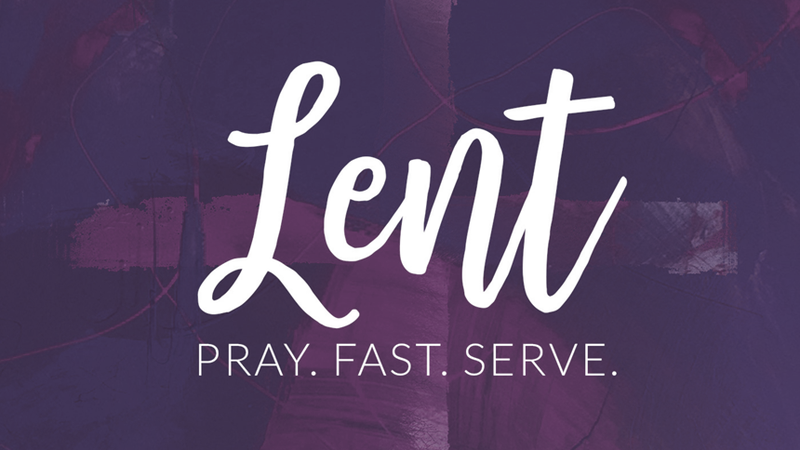
In terms of fasting on Fridays during Lent there is more flexibility as fasting is viewed as a form of penance. This means, as Catholics, we show that we repent or are sorry for our sins through action. This brings us closer to God. Therefore, on all other Fridays of Lent, the law of the common practice of penance is fulfilled by performing any one of the following:
(a) prayer – for example, Mass attendance; family prayer; a visit to a church or chapel; reading the Bible; making the Stations of the Cross; praying the Rosary.
(b) self-denial – for example, not eating meat; not eating sweets or dessert; giving up entertainment to spend time with the family; limiting food and drink so as to give to the poor of one’s own country.
(c) helping others – for example, special attention to someone who is poor, sick, elderly, lonely or overburdened.
Pope Francis has provided these suggestions for fasting in 2021:

Louise East - Religious Studies Coordinator
Mission
World Day of Prayer
On Friday 5 March, senior students from our College attended Campbelltown Uniting Church for the World Day of Prayer.
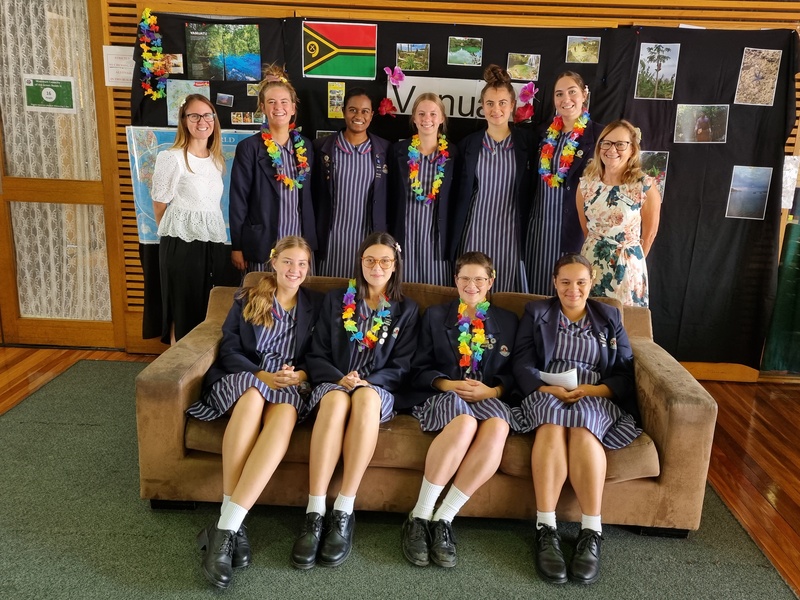
This opportunity was very valuable for all the girls who attended as it allowed them to experience an Ecumenical Prayer Service prepared by the Christian women of the Republic of Vanuatu. The theme was ‘Build on a Strong Foundation’ relating to the social inequalities that the people of Vanuatu experience. The students were involved in the service by reading the voices of Vanuatu and assisting during the Offering. They represented the College beautifully and were enriched by the experience. We thank the Campbelltown Uniting Church for the invitation and hope to be there again next year.
Maria Boulatsakos - Year 11 Coordinator
Year 10 Retreat
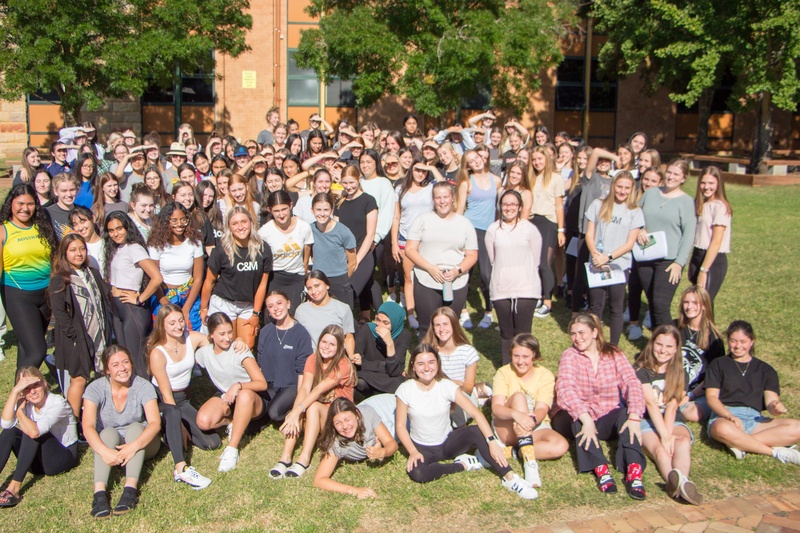
Year 10 Students
Jesus said to his disciples, “Come away to a deserted place all by yourselves and rest a while.” (Mark 6:31)
On Thursday 4 March and Friday 5 March, Year 10 girls experienced the first of their three Senior Retreats. The Year 10 girls and the Year 10 Pastoral Team, headed by Mr Ashkar, gathered at Winbourne, the Christian Brothers Retreat Centre at Mulgoa. There they participated in two days of prayer, discussion, reflection and sharing. The themes explored during the Retreat were “On the Journey” and “Go and do the same”. “On the Journey” was the theme of the first day of the Retreat and was focused on an examination of life as a journey. The girls reflected on their life’s journey so far, considered where they find themselves at the moment, and contemplated what future they might be envisioning for themselves. “Go and do the same” was the theme of the second day, which focused on the Parable of the Good Samaritan and its lessons about being of service to others, including serving those whom we might perceive as our enemy. This enabled the girls to develop a better understanding of what is expected of them when they undertake the Year 10 Community Service Program.
As a year group the Year 10 girls are to be commended for the way they engaged with the Retreat Program by being respectful listeners and attentive contributors to discussions.
The following is a recollection of the retreat experience from a Year 10 student, Monique R:
"My expectations of the Year 10 retreat 2021 was at first that it was just going to be about worship and prayer the entire two days we were spending at Winbourne, Mulgoa. But as we got off the bus and played our icebreaker games I quickly came to the realisation that this wasn’t going to be like our usual camps, because I saw it as a perfect time for reflection and reconnecting with God. The site was beautiful and helped us to destress.
The first session was an introduction to what the retreat was going to be like. We gathered as a grade and then separated into smaller groups with a teacher who would be our group leader. My leader was Mrs Singles. A few lessons we were taught were that we are building our life story and we read a story about a man and a builder, to make the point that every little thing we do in life goes towards building the person we become—just like building our own house. Our main focus of the retreat was life as a journey. Mr Gattone introduced us to the concept of cross roads and signposts, advising us to use this analogy for making sense of our own lives. There are things in life that we choose for ourselves (picking what high school to go to etc…) and things that happen to us that are beyond our control (but things we can choose to deal with using our inner qualities). We shared the story of our life journeys with each other and some stories were especially powerful to hear about.
Overall the experience of the retreat was mindful, reverent, peaceful and reassuring, And on behalf of my Year 10 cohort, I would love to say thank you to the teachers Mrs Bleyerveen, Miss Stapley, Mr Quigley, Mrs Wilson, Mrs Lahood, Mr Lord, Mrs Singles and especially to Mr Ashkar and Mr Gattone".
Monique R - Year 10 Student
Angelo Gattone - Mission Coordinator
Learning and Teaching
Part Time Work and the HSC
Many young people begin working while at school. Students are more likely to combine study and work as they progress in their schooling years and at St Patrick’s College, we see that many senior girls are electing to take up part-time work. The Preliminary and Higher School Certificate Years (11 and 12) are a full-time job and juggling paid or volunteer part-time work in addition to school work can be a challenge. This short article aims to explore some of the advantages and disadvantages for students choosing to work part-time.

Advantages of part-time work
Working while in school can be beneficial. Students like the independence their job gives them. Employability skills developed through activities undertaken outside of school may help with gaining employment later in life. Part-time work can improve organisational skills associated with balancing the competing demands on student’s time. There are benefits for young people who are exposed to new experiences and part-time work requires a level of maturity, commitment to task completion and the need to turn up to work on time.
Disadvantages of part-time work
Part-time work can adversely affect school performance – particularly Year 12 results. Too much work can lead to inconsistent study patterns and this can impact academic achievement. Studies have shown that students who worked intensively in Year 12 reduced their chance of securing the university position of their choice because of lower marks obtained in Year 12. Part-time work may affect sleep patterns when students take on weekday shifts that run late into the evening. The knock-on effect is that students are not fully alert the following day, and this impacts on engagement in classroom activities
Take-aways
Part-time work offers students opportunities to save money, experience financial independence and develop life and employability skills. However, school performance deteriorates as work demands increase. It is not easy to say at which point work can turn from a benefit into a negative because this can be highly variable depending on the circumstances of each student. As a guide, part-time work hours during term time should be restricted to one shift or two short shifts per week so that work commitments do not impact on study or class time. A few additional shifts during the term break can support students in their goals associated with financial independence.
Further reading/viewing
Follow this link to Dr Michael Carr-Gregg's article - Surviving the Final Year that includes interviews with an expert panel.
Debra Bourne - Assistant Principal Learning and Teaching
This article draws on several sources of information:
Commonwealth of Australia (2009) Adolescent overload? Report of the inquiry into combining school and work: supporting successful youth transitions.
Australian Council for Educational Research (1999). The effects of part-time work on school students.
NCSS Challenge
The NCSS Challenge is a programming competition run by the Grok Learning Team. Through the competion, our Year 10 Catalyst class are learning to code in Python. Python is a scripting language used for many different purposes such as web applications and scientific research. Companies like Google, Facebook and Reddit all use Python in their infrastructure and web services.
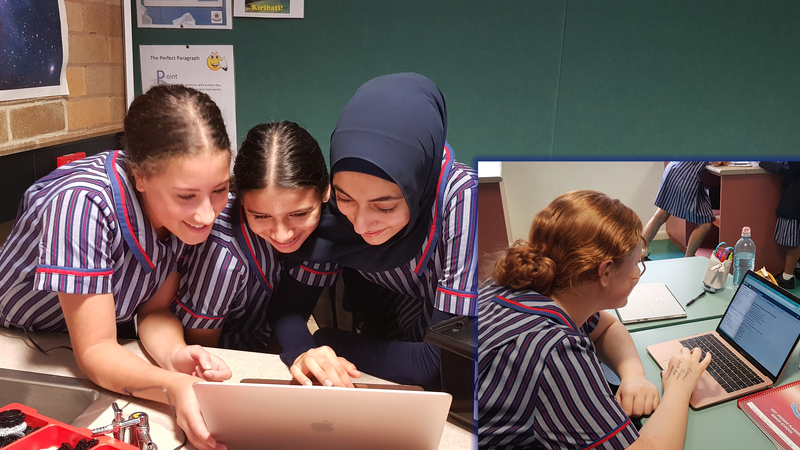
The following four students are doing particularly well in the Challenge:
From Australian and New Zealand entrants, congratulations to the following girls
Sarah W – currently equal 1st
Alyse A – 15th
Valentine B-H 14th
Kawther M – 17th
Kate Lefever -Catalyst Teacher and Science Coordinator
HSIE Corner
Year 9 Elective History and Year 11 Geography enjoy hands on learning experiences!
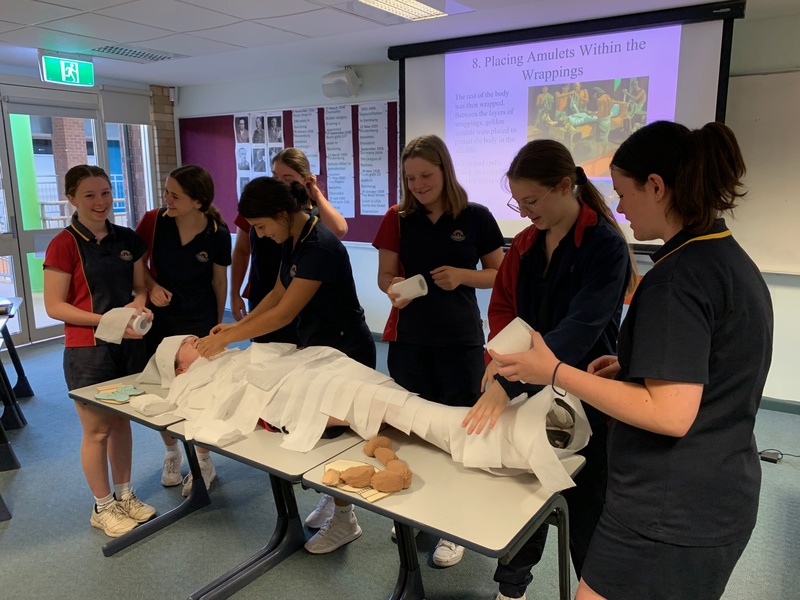
Year 9 Elective History - 'Anubis would happen!'
In Year 9 Elective History - students enjoy the academic rigour of the course, which has shown time and time again (excuse the pun!) to improve academic research and essay writing skills - in both Year 11 and 12 and University studies. But also, they enjoy the opportunity for creative and hands on learning! Mrs. Musico-Rullo's class have been learning about the Ancient Egyptian process of mummification - but things may have gotten out of hand...
Year 11 Geography: Fieldwork around the College!
Our Year 11 Geography class are studying Biophysical Interactions, learning how the four spheres interact to create environments. The practical component of Geography involves completing primary research to test aims and hypotheses formulated after conducting secondary research.
Our Geography girls are investigating the formation of microclimates and so conducted fieldwork to determine the variety of microclimates experienced within St Patrick’s College. They used anemometers and thermometers at a variety of locations and made observations and conclusions as to what caused the microclimate to develop. Great work Mrs. Wilson and the Senior Geography girls for their commitment to physical Geography!
Co-curricular offerings!
Please talk to your nearest HSIE teacher about opportunities in:
- The Model United Nations competition https://rotarydistrict9685.org.au/sitepage/muna
- Mock Trial https://www.lawsociety.com.au/for-the-public/mock-trial-competition
- Mock Mediation https://www.lawsociety.com.au/for-the-public/mock-mediation
- The Economic and Business Educators 'Play Your Own Enterprise' Competition https://www.ebe.nsw.edu.au/files/news/2019/04_19/PYOE%202019_Brochure_web%20version_FINAL.pdf
- The 'Museum of Fire' Competition https://www.museumoffire.net/about-the-museum
Great prizes, fame and fortune await the brave entrants to these competitions.
Nathan East - HSIE Coordinator
HSC Minimum Standard
Students need reading, writing and numeracy for everyday life after school.

To receive the HSC, students are required to demonstrate a minimum standard of literacy and numeracy. This is the level of reading, writing and numerical ability needed for everyday life after school.
To show they meet the HSC minimum standard, students need to achieve Level 3 or 4 in short online reading, writing and numeracy tests of skills for everyday life.
This year all year 10 students will have the opportunity to demonstrate their achievement of minimum standards, commencing with Reading, early in Term 2.
More information can be accessed here: https://educationstandards.nsw.edu.au/wps/portal/nesa/11-12/hsc/hsc-minimum-standard/online-tests
Eileen Kelly - Learning Enhancement Coordinator
Naplan Online 2021
The National Assessment Program – Literacy and Numeracy (NAPLAN) 2021 is an annual assessment for students in Years 7 and 9 and will commence on the 11 May, continuing over a 9 day period.
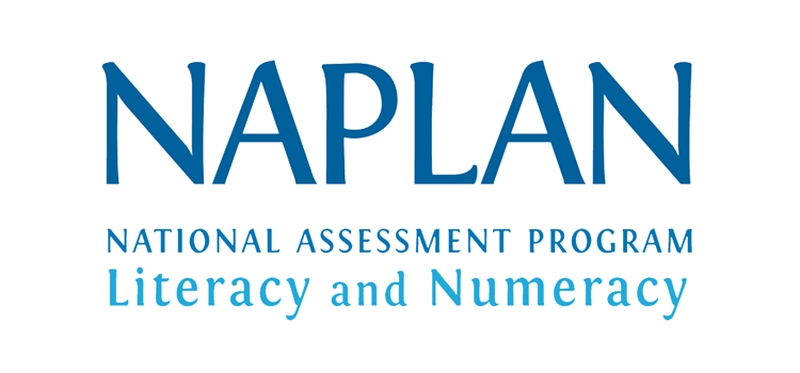
In preparation for the NAPLAN ONLINE tests all Year 7 and 9 students will have the opportunity to complete a Practice Test on the 25 March.
Practice Test
Omnibus Test (mix of literacy and numeracy questions) - 40 minutes
Writing Test – 40 minutes
NAPLAN ONLINE TEST commencing 11 May
Writing: 42 minutes
Reading: 65 minutes
Conventions of Language: 45 minutes
Numeracy: 65 minutes
If you wish to know more about NAPLAN please visit http://www.nap.edu.au/.
Eileen Kelly - Learning Enhancement Coordinator
Senior School
Year 11 SOR Incursion
Year 11 was involved in an incursion this week which complemented their understanding of the Studies Of Religion syllabus.
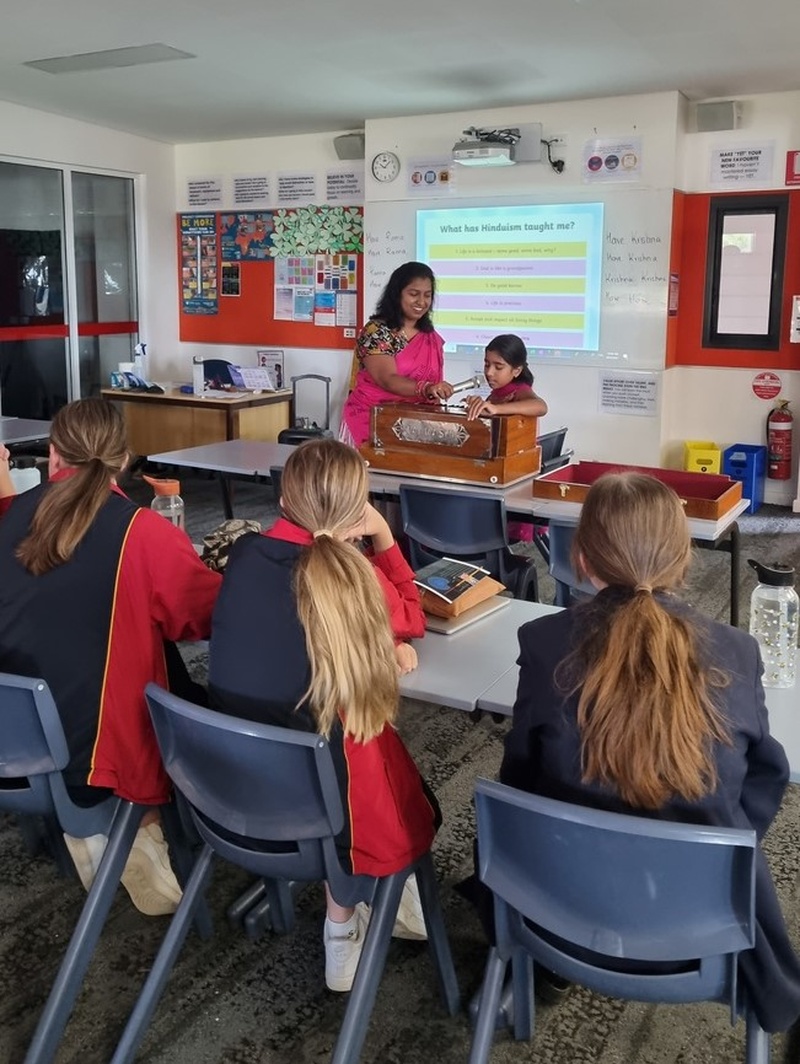
Mrs Sharma and her daughter sharing a Hindi song
In small groups, they participated and engaged in different workshops. These workshops presented different worldviews such as from the World Religions such as Buddhism, Christianity and Hinduism, Aboriginal Spirtualities and New Age Religious Expressions and Spiritualities. It gave the girls an opportunity to ask questions and expand their critical thinking on the world they live in through the lens of religion and spirituality.
We thank all teachers involved in the day for giving up their time to share their experiences.
Maria Boulatsakos - SOR Teacher and Year 11 Coordinator
Year 12 Dance Incursion with Jasmin Sheppard
On 25 February, contemporary dancer, choreographer, and director Jasmin Sheppard led a workshop with Year 12 HSC Dance students.
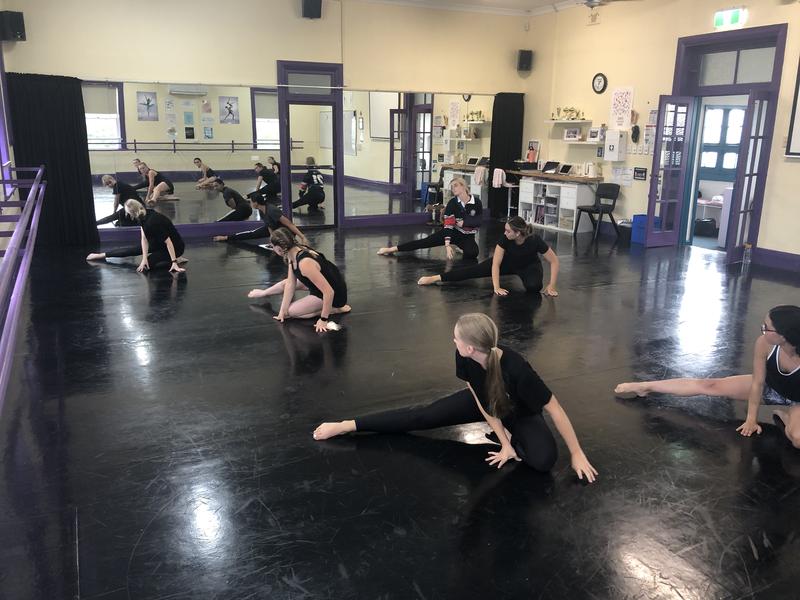
Jasmin provided Year 12 Dancers with a conceptual grounding in Indigenous choreographic processes, explored through her artist talk and practical workshop. Not only was this knowledge valuable for developing their own choreographic processes, but her insight as a professional dancer with Bangarra Dance Theatre will assist students to broaden their understanding of 'Terrain' – the HSC prescribed Dance Appreciation work. The students were also fortunate enough to learn some of Jasmin’s repertoire from her recent work ‘The Complication of Lyrebirds’ which premiered in January at Campbelltown Arts Centre as part of the Sydney Festival 2021. As developing performers and artists at St Patrick's, we were very fortunate to have had this opportunity to work alongside and learn from an industry professional like Jasmin.
Emma Randall - CAPA Teacher and Year 12 Coordinator
Co-curricular
Thanks to St Pat's Ensemble and College Choir
A huge thank you for the amazing performances by the St Pat's Ensemble, College Choir and Elective Music Classes on Open Day. The girls performed with amazing enthusiasm and represented the College exceptionally. Well done to our soloists Charlize, Diadem, Hannah, Annie, Lyla, Sta, Abigail, Emily, Eve, Sofia, Alif, Piper, Shreta and Jordana.
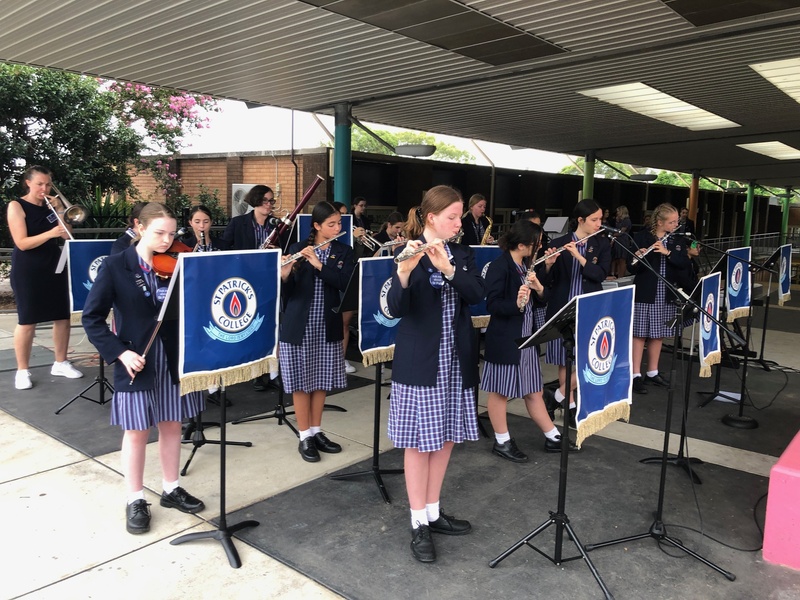
St Pat's Ensemble Open Day
CSDA Public Speaking Round 1
On Friday 5 August, twelve students from Years 7 to 12 proudly represented the College in Round One of the CSDA Public Speaking Competition. These students included Annalise E, Annie M, Sophia C, Diadem A, Tamanna M, Evie M, Monique R, Ysabelle O, Erica B, Olivia L, Annabelle M and Amadee T. This competition focuses on the students’ ability to compose and deliver a speech with a sophisticated approach to ideas, style and structure.
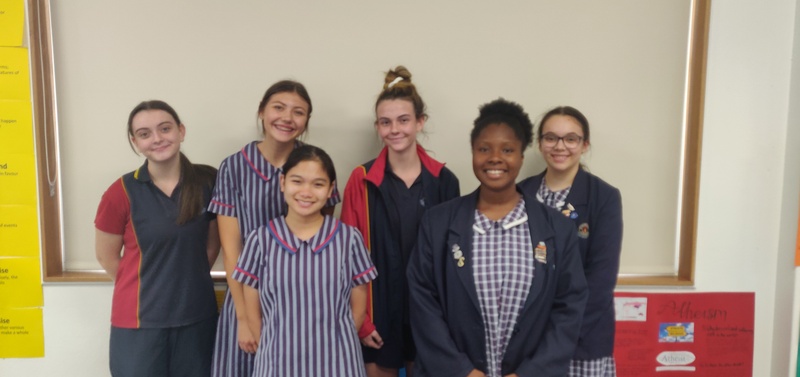
Annabelle M, Monique R, Ysabelle O, Olivia L, Diadem A and Evie M
Two weeks prior to Round One, students were presented with the following list of topics to choose from:
- If only
- Dreams
- I am strong, I am invincible, I am...
- Let us build a house...
- Dear Santa
- One who is in chains, cannot run
Preparation for this competition involved multiple training sessions where students worked to brainstorm, develop, perfect and practise a speech. The key here is for the student to find something that they are passionate about, and we were blown away by the passion demonstrated by all our speakers as they tackled topics related to gender, equality, gratitude, the environment and multiple paths to success.
The competition was held over zoom, with each student entering a 'Breakout Room' for their heat. Rooms consisted of up to 10 students from 10 other schools, all of which did a formidable job. It was a valuable expereience for our girls to view and learn from all speakers in their heat.
Adjudicators certainly had a tough decision to make, but we were lucky enough to have four students make it through to Round 2:
Diadem A of Year 8 made it through with a speech asserting the importance and relevance of third wave feminism, arguing that freedom is essential for female success.
Tamanna M of Year 9 with a speech exploring the Human Bill of Rights, questioned whether these are truly respected by all people, communities and governments today.
Ysabelle O of Year 10 won her room by critiquing the myth of equal access to success, using an extended metaphor of a race and the multiple opponents we must fight as we run it.
Monique R of Year 10 made it through by using an extended metaphor, but this one focusing on the 'Game of Life' and all the complexities needed it win it.
We are very proud of all our speakers from Years 7 to 12. It was gratifying to watch all of them grow as speakers, thanks to their hard work. A big thank you to Mr Duncan, Miss Hilder, Miss Bella, Mrs McGillicuddy, Miss Iler, Mr Godbee and Ms Lennox for their support.
Laura Bryant - Public Speaking and Debating Coordinator
College Library
NSW Premier's Reading Challenge
The 2021 NSW Premier’s Reading Challenge is now open and will run until 20 August 2021.

The aim of the challenge is to encourage a love of reading for pleasure in students and to enable them to experience quality literature. It is not a competition but a challenge to each student to read more and read more widely.
Students in Years 7, 8, 9 and 10 are invited to participate by reading a total of 20 books during the challenge. Students who manage to complete the challenge will receive a certificate.
If you would like to participate, please register your interest with Mrs Denford in the Library and pick up your Welcome Pack.
The College Library
StudySkills@TheLibrary
4 REASONS NOT TO PUT OFF STARTING ASSIGNMENTS
Here are four reasons why you should start working on your assignment immediately.
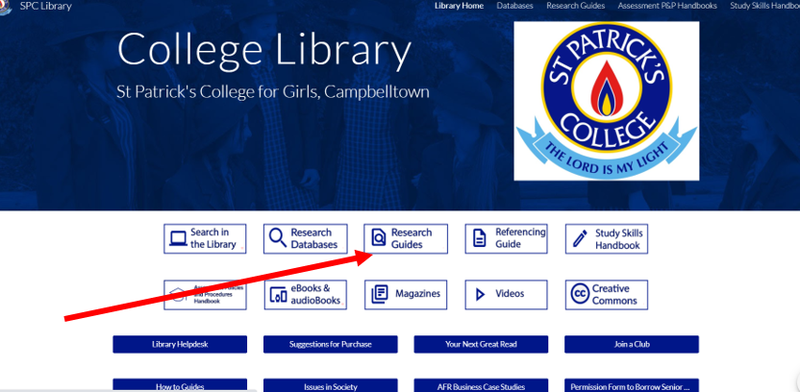
Library page-research guides
GET YOUR BRAIN THINKING ABOUT THE TOPIC:
Even if your assignment is not due for weeks, start thinking about it immediately. At the very least, make sure you review and understand the requirements the day you get your assignment. Even if you are not thinking about it directly, your subconscious will be hard at work.
FIND LIBRARY AND ONLINE RESOURCES:
Although the College or local library may not be your main source of reference, you should drop in soon after receiving the assignment. Your teacher will have alerted the library to the assignment, and a Libguide may have been created and some relevant books may have been put aside. If the whole class/yeargroup has the same assignment, any relevant books will be on "Assessment" and not for loan. This ensures the material is available for everyone equally. Your library staff can also guide you to online journals or databases that may be useful.
STARTING EARLY MEANS MORE TIME TO EXPLORE & ASK FOR HELP IF NEEDED:
If you do some initial research on the assignment, you could find yourself needing more direction in your next step of the research. For example: perhaps there isn’t enough information, or you find you don’t understand important concepts, or that you need to speak to your teacher to get further clarity. If you discover this early, you will still have plenty of time to plan, research, write and present your assignment. Imagine if you didn’t start your assignment for a week or so, and then discovered you needed more guidance. You could easily run out of time. Starting early also gives you a longer time to think through and develop your ideas.
CREATE A SAFETY NET:
Starting your assignment immediately will give you a safety net in case you get sick or something unexpected happens. Assignments are usually given over a period of time because they require more time. Students must plan a strategy or schedule to ensure they are completed.
So get started today and remember that your teachers and the library are here to help!
The College Library
eBooks and Audiobooks - free & available 24/7
A fantastic collection of eBooks and Audiobooks are available free of charge...anywhere, anytime for all St Pat's students.
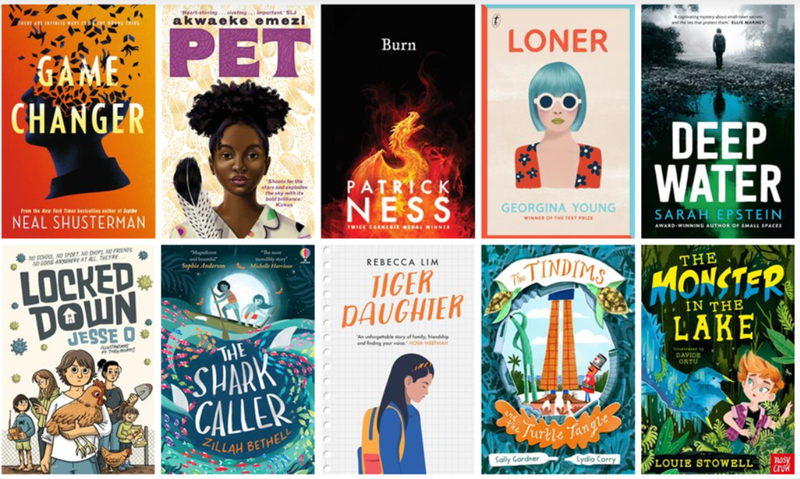
Some of the new releases on ePlatform this month
All St Patrick's College students have access to a wide range of new release, favourites and classic eBooks and audiobooks. Students can download the ePlatform by Wheelers app on their phones and mobile devices (or go to stpatricksnsw.wheelers.co on their laptops) to download eBooks and audiobooks (great for school travel and road trips).
Current titles now available include:
Tiger Daughterby Rebecca Lim
Dash & Lily's Book of Daresby Rachel Cohn & David Levithan
The Boy from the Mishby Gary Lonesborough
Concrete Roseby Angie Thomas
The Ever After by Amanda Hocking
Instant Karma by Marissa Meyer
The Left-Handed Booksellers of London by Gareth Nix
Having trouble downloading the ePlatform app? Contact Library staff for help!
The College Library
Careers
Community News
Nationally Consistent Collection of Data on School Students with Disability (NCCD)
Every year, all schools in Australia participate in the Nationally Consistent Collection of Data on School Students with Disability (NCCD). The NCCD process requires schools to identify information already available in the school about supports provided to students with disability. These relate to legislative requirements under the Disability Discrimination Act 1992 and the Disability Standards for Education 2005, in line with the NCCD guidelines (2021).
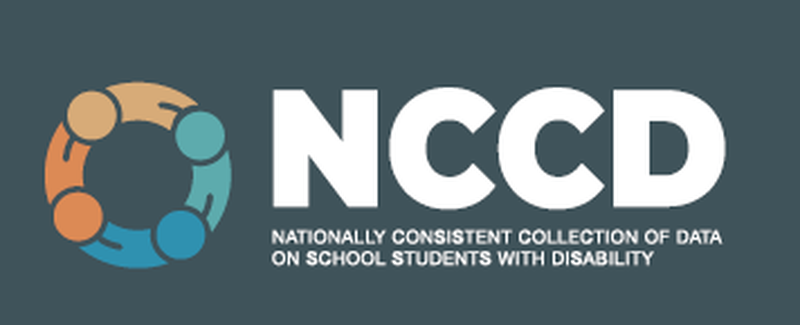
Information provided about students to the Australian Government for the NCCD includes:
- year of schooling
- category of disability: physical, cognitive, sensory or social/emotional
- level of adjustment provided: support provided within quality differentiated teaching practice, supplementary, substantial or extensive.
This information assists schools to:
- formally recognise the supports and adjustments provided to students with disability in schools
- consider how they can strengthen the support of students with disability in schools
- develop shared practices so that they can review their learning programs in order to improve educational outcomes for students with disability.
The NCCD provides state and federal governments with the information they need to plan more broadly for the support of students with disability.
The NCCD will have no direct impact on your child and your child will not be involved in any testing process. The school will provide data to the Australian Government in such a way that no individual student will be able to be identified – the privacy and confidentiality of all students is ensured. All information is protected by privacy laws that regulate the collection, storage and disclosure of personal information. To find out more about these matters, please refer to the Australian Government’s Privacy Policy (https://www.education.gov.au/privacy-policy).
Further information about the NCCD can be found on the NCCD Portal (https://www.nccd.edu.au).
If you have any questions about the NCCD, please contact the school.
